Photo: Courtesy of Elyanna
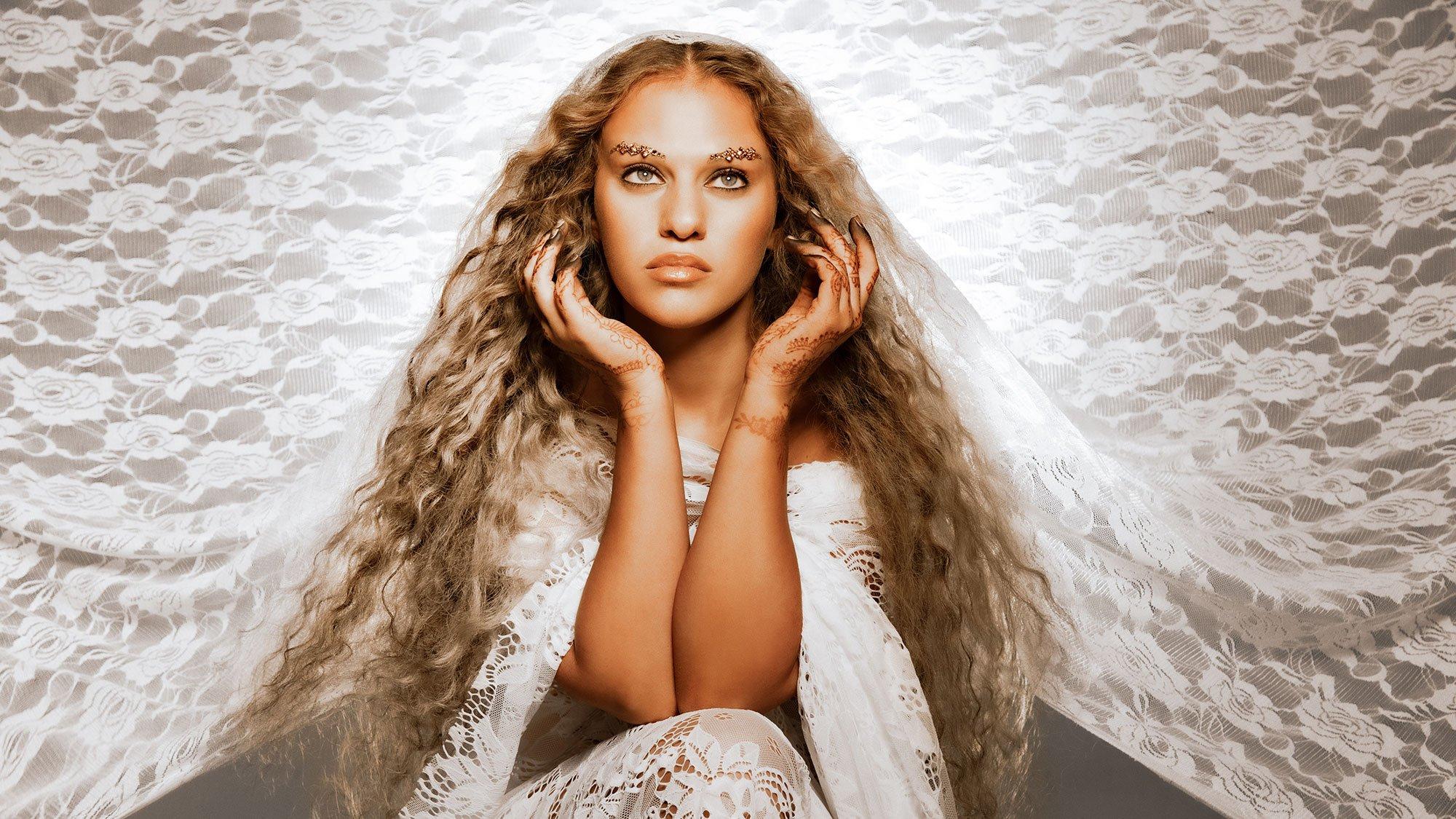
news
Inside Elyanna's World: How Creating 'Woledto' Allowed The Singer/Songwriter To Find A New Layer Of Herself
Elyanna's distinctive new album, 'Woledto,' combines the sounds of her Palestinian and Chilean heritage with an appetite for powerful pop songstresses.
Elyanna is every bit an artist of our specific moment. The 22-year-old Los Angeles-based singer weaves together global influences, merging sounds from her personal history with a wider pop sensibility.
With hints of Rihanna’s sultriness and Astrud Gilberto's effortless cool, Elyanna's music is often accompanied by a pulsating beat and traditional Middle Eastern instruments.
By uniting musical traditions from the Palestinian and Chilean sides of her family, she creates songs that are at once sweetly enticing and bracing. "Al Sham," for example, opens with ethereal, floating vocals before morphing to incorporate aggressive synths and drums. The result is a growing, idiosyncratic body of work made for both crying on the dancefloor and rump-shaking.
Paradoxical? Sure, but there are no contradictions in Elyanna’s art, only unexpected connections that make sense as soon as she starts talking about how they fit together. Of her forthcoming album, Woledto (in English, I Am Born), Elyanna explains that she and her brother/co-composer/producer Feras wanted to create music with unusual depth. "I want people to find these clues, because that’s the kind of art I like, when it’s deep and not always on the surface," she tells GRAMMY.com.
She knows Woledto is a big swing, and relishes the feeling of freedom and self-determination that comes with that kind of risk. "I really put my heart and all my emotions, everything I feel in it, and what I love about it is that I think that it's ahead of its time."
In 2023, Elyanna notched a unique milestone as the first Arab artist to perform in Arabic at Coachella. Her subsequent debut tour sold out every date, and her next performance in the U.S. is set for April 27 at Los Angeles’ storied Wiltern Theater. The singer/songwriter takes it all in stride, with a natural self-possession; Elyanna is an energetic, curious young woman who’s as at ease on the road as she is in the living room studio she maintains at her parents’ home.
With Woledto out April 12, Elyanna sat down with GRAMMY.com to chat about writing authentic bangers, repping every facet of her identities at Coachella and beyond, and her seamless approach to sound and vision.
This conversation has been condensed and edited.
Woledto is out this week – congratulations! How are you feeling about it?
I'm excited – it feels so cool! I really took my time with this one, because I was able to figure out this new layer of myself and was able to connect with my roots more than ever.
I know that not everyone's gonna get it right away, and I believe that when you want to create art that feels timeless, you have to make sure that you don't rush it. It's fine if it takes its time. I just wanted to create something that felt outside of the world, and had its own feeling and world.
Can you expand a bit about pouring your whole self into this album? You mentioned your feelings, your identity, and you have such an interesting, multinational identity as a Palestinian-Chilean woman who now lives in Los Angeles. How did you incorporate all of that – and other aspects of yourself – into Woledto?
I come from two different backgrounds, and it's always very natural for me to put those together; I was born and raised in Nazareth, Palestine, and I am also part Chilean, so this is my world. I love to dig deeper into culture, and find more inspirations — there's so many hidden gems in my cultures, and I feel like it's time for the world to see it and to hear about it.
I took inspiration from my grandfather — he’s the only featured performer on this album. I saw this video of him singing in a wedding; he was a singer and a poet, and he was doing a freestyle in Arabic. I sampled that video in a song called "Sad in Pali" — me and my brother were in Palestine for a visit after a few years away, and we felt very disconnected from everything there. This album has a lot of intentional inspirations that I want people to find.
Your music videos feed into that goal, too — they’re very arty, the imagery is so distinctive. The song that leaps to mind first is "Gheneni", which opens with a male vocal — I thought maybe it was a call to worship — and then channels Rihanna in your vocal, while the visuals are a hybrid of belly dance and you and your girls all hanging out in the desert. How do you weave all of those things together into a song that means "Drive Me Crazy"?
So my studio is at home in the living room, super humble, and it’s always full of friends and family sitting around while me and my brother [Feras] are working there.
One day my dad was watching a very dramatic Arabic show, and my brother heard this music in the back that felt so powerful, so spiritual. So my brother took that and sampled it, and that’s the vocal that opens the song. Then he made a beat that feels like tribal fusion to follow. I always say "Gheneni" is spiritual, and also reminds me of "Gasolina" by Daddy Yankee, because it’s got so much swag. I’m rapping and just doing my thing on it, it’s a rollercoaster of emotions and very sassy. I love it.
You look so free in that video, and I noticed that in most of your videos, there’s at least a few big moments of you being surrounded by other women. It’s really memorable in "Mama Eh," too. Tell me a little bit about the aesthetic and approach you use when you’re making these videos?
I really love to collab with people — I try my best, always, to be open to ideas. Usually how it starts is with my brother, we make the music and take care of the visual creativity of it. He’s my creative director, so we always keep sharing ideas together, brainstorming, and we save it all in this little folder to use whenever the time’s right. I love to always come in ready for my videos, live performances, but I never want to forget to be natural, and I don't want to be too ready, sometimes I want to be free. Sometimes all you need is just to be you, singing on camera, and that's enough.
I love having a lot of female empowerment around me, too. I was raised that way — my mom is a very strong woman, my grandma is a very strong woman, my sister is a very strong woman, and I find so much power, if I'm feeling down, to talk to my sister and to talk to my girlfriends. So especially as an Arab woman, I want to make sure that I lift this female energy up for all the girls out there, and all the girls in the Middle East to feel that they can dream big, and they don't have to be always so soft.
That’s really who I am, sometimes aggressive, very passionate and on fire. I feel like every human, we have a little bit of both, and I don't want to hide any of them. I want to be real and honest.
It seems like another throughline in your music is its cinematic quality. Woledto’s title track is also the album opener, and it sounds like it could as easily have been something you wrote for a film. If you could pick any film scene for your music to play over, what would it be?
I'm such a movie nerd! Right now, the film that felt so much like the world that I create in my music is Dune, Part Two or The Black Swan. There's so many scenes that I love, but it makes so much sense from what we were just talking about the different, changing parts of our personalities that I feel like the last performance where Natalie Portman had to perform as both the white swan and the black swan would be perfect for the outros of "Kon Nafsak" or "Sad in Pali."
I understand you had a really special experience meeting Lana del Rey on one of your music videos. It makes sense that you’d love her, her work is so cinematic and she has such a recognizable style.
Yes! Lana’s sister Chuck is an amazing director, and she shot one of my videos, for "La Vie en Rose." It’s a cover of the Edith Piaf song, and Chuck has such a beautiful vision.
So Lana was there for the whole shoot, and she picked my dresses, and gifted them to me! She was an angel, just the coolest, and she did not disappoint. I've been listening to Lana since I was 10, and was obsessed with her. She was literally on my phone case. Meeting her and working with her and fully trusting what she says — I cried at the end, it was amazing.
How great to have an experience that disproves the advice never to meet your heroes. In your cover, do you sing in French, English, or Arabic?
It’s in Arabic, the title for my version is "Al Kawn Janni Maak." I actually co-wrote that translation with my mom and my brother; I’d always wanted to hear it in Arabic.
That's really cool. It sounds like your work is very rooted in your family, not just having them with you at home or on tour, but they’re a big part of your music itself, too.
It was always this way, even when I was little — I was 7 years old, 10 years old, and just dreaming of being an artist. My brother is the one who discovered my talent — he’s a pianist, and he would sit next to me for hours while I'm singing with a big mic, saying "Yo, you can do this note better."
My mom writes my music with me, and it’s very powerful and so interesting. My sister Tali is part of it, too; she’s always been very good with fashion and is my stylist. We’d always be doing fashion shoots in our backyard, where my sister would dress me and my brother would take the pictures. I don't think anything’s changed since then, it’s just on another level, a bigger scale. We complete each other.
Let’s talk about your influences and how you find your way to them. You’ve got this great playlist on Spotify that includes such a diverse group of artists, including ones that were delightful surprises: Pink Floyd, Nancy Sinatra, Chris Isaac, and Sadé. How do you discover artists who have a long history but are new to you?
I grew up listening to and singing jazz, I used to be obsessed with it. And it was very rare in Nazareth, but I must have found videos on YouTube. Etta James’ songs feel so real and timeless. There’s a lot of live instruments, it’s very detailed and very raw. It’s so beautiful! The lyrics, the production, even the fashion —it’s a world that I just really, really love.
I am very open when it comes to music. The best thing is to have conversations with people and meet new people, they bring you so much knowledge that you can bring into your own world.
Speaking of sharing worlds, you did that on a massive scale by playing at Coachella last year. You’re the first Arab artist to perform in Arabic at that festival, and it’s kind of shocking that it took so long for that milestone to happen. What does that experience mean to you?
I like to look at the bigger picture; you know, it was very exciting, and it's not only for me, it's for our culture, for our people. It was an honor singing at an iconic festival, and I do not want to be the last person that performs there in Arabic.
It was a moment that I feel like we needed for our culture, and I was surprised by how many people saw that performance — I didn’t expect it, so many people were there from completely different cultures, probably not knowing what I was saying, but they still loved it.
That mirrors your interest in and embrace of always experiencing and looking for something new, giving that to the audience, too.
Exactly. It was new to me, too, because Coachella was really my first real performance. I'm there thinking that's a lot of responsibility on me now, so I have to make it work, to make it the best I can. I was able to bring the belly dancing, the tribal fusion dancing, all these elements that we have in our culture, like the coins on my hips — it means a lot to me that people took it in like that.
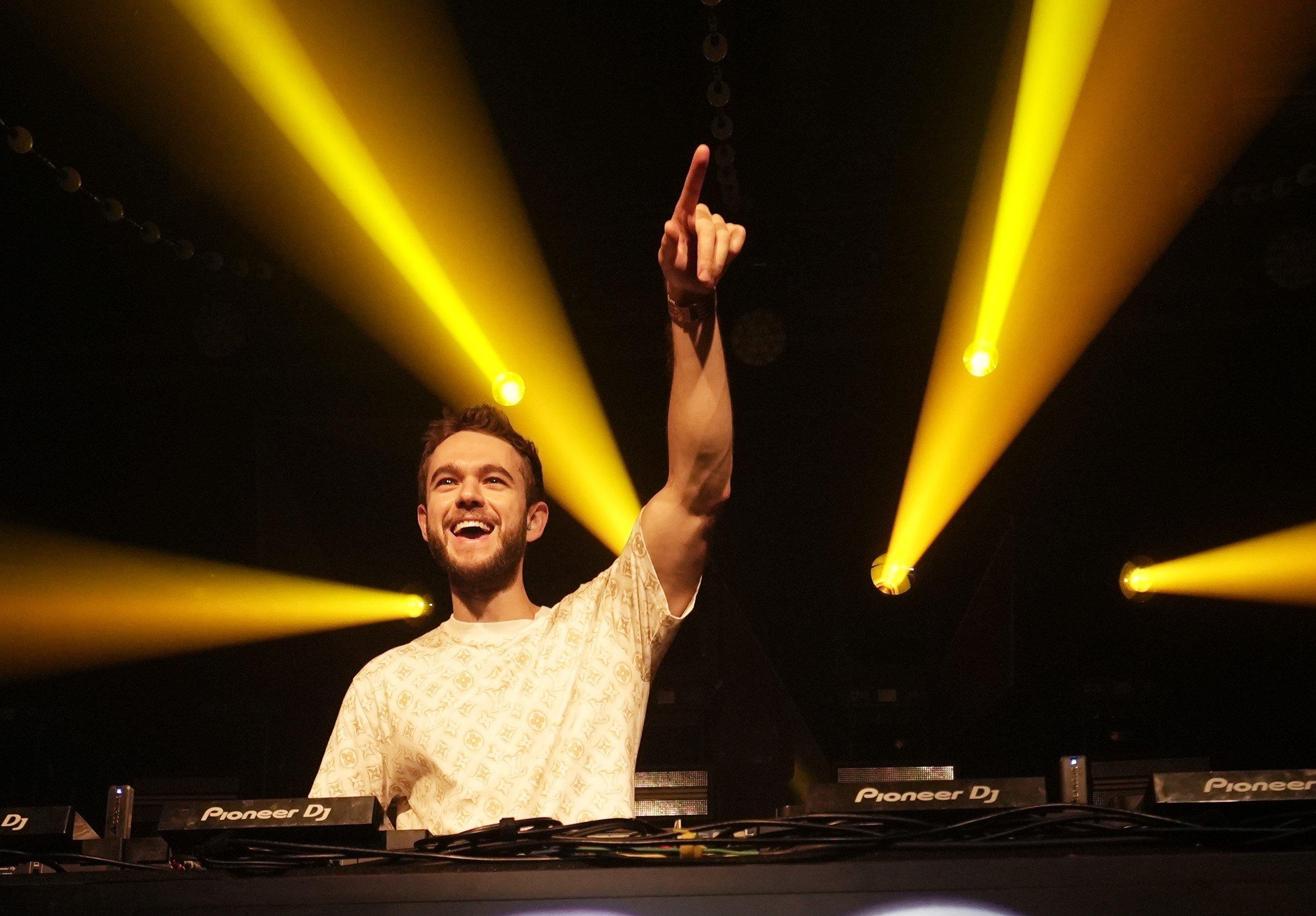
Photo: Ilya S. Savenok/Getty Images for Twitch
feature
Zedd's Road To 'Telos': How Creating For Himself & Disregarding Commercial Appeal Led To An Evolutionary New Album
'Telos' "isn't going to be that pop album that some people may have wanted me to make," Zedd tells GRAMMY.com of his highly anticipated album — his first in nine years.
At the time of our call, the release of Telos — Zedd's first studio album in nearly a decade — is just seven days away. Snug in an earthy brown crewneck, the 34-year-old musician joins the Zoom from his new home in Encino, California, with a degree of poise that some might find surprising at this point in the rollout.
Still, his relaxed body language, decisive, measured speech, and quiet confidence make it clear that any anxiety he once felt about the LP has been replaced by pure anticipation.
"I am honestly just really excited. I think I've released music in the past that I was nervous about, but it's quite different with this album," he tells GRAMMY.com. "I feel very calm and just happy to be able to release this music that I've been working on for so long, some of which has been in the works as late as nine years ago."
Out Aug. 30, Telos arrives about four years later than initially announced and about eight years after it was contractually due. Though Zedd confirmed that the long-awaited answer to his second studio album, True Colors (2015), would arrive in 2020, he indefinitely postponed the project at the height of the COVID-19 pandemic.
"I decided to push back the album to when things are more back to normal," he wrote in a Reddit AMA (ask me anything) in November 2020. "I really wanted it to come out this year, but I put the album on standby because during quarantine, I just didn't feel the inspiration to make this the best album possible."
Timing is everything and Zedd, who counts a clock ticking sample among his stylistic hallmarks, knows this well. Zedd embraced the axiom while making Telos, an album that "isn't for the algorithms" in an era when creative works' cultural capital is largely decided by how well they pander to an algorithm. Telos is decidedly — and in some ways, daringly — non-commercial. "Lucky," alongside singer/songwriter Remi Wolf and "Automatic Yes" with John Mayer, are notably the only two tracks palatable for commercial radio airplay. The 10-track album largely plays like a love letter to classical music (there is an orchestra on the entire LP), with flashes of pop, dance/electronic, jazz, world music, and metal influence. A cross-generational list of collaborators — including 40-year-old musician and composer Jeremy Kittle, who recorded each string for the album one by one, and Gen Z singer-songwriter Bea Miller — further dynamize Telos.
Telos "isn't going to be that pop album that some people may have wanted me to make," Zedd acknowledges. Nor will it be the dance/electronic LP that purists from his name-making run in the early-2010’s might long for. Fans gained during the GRAMMY-winning producer's complextro, electro, and progressive house-heavy era (think "Shave It") have been some of his most outspoken critics in recent years, reproaching his stride into commercial pop.
This response is neither surprising nor foreign to Zedd. "I felt the same way about a lot of bands and artists that I grew up listening to when I heard their new music," he reflects. "In the moment, you might be like, I'm disappointed, 'cause I wanted X, Y, Z, and with a little bit of perspective, you realize what an artist has done, and maybe those become your favorite works when you give it time."
Zedd has already proved his ability to craft pop hits with staying power — with help from some of the genre’s most prominent voices. The 2017 single "Stay" with Alessia Cara (2017) and 2018's "The Middle" with Maren Morris and Grey were two of Zedd's biggest smashes in the dance-pop domain post-True Colors. Both singles achieved platinum certification, though "The Middle" has since struck platinum six times. Like "Clarity" — the 2012 breakthrough single that scored Zedd his sole golden gramophone (for Best Dance Recording) — "Stay" and "The Middle" imbued him with the confidence and greater depth of reference to make an album like Telos.
"If I made another album today that felt the same way Clarity felt back then, you wouldn't feel the same way about Clarity today," Zedd reasons, adding that Telos has some of the "internal motivations" and experimentation of Clarity. "It's just a more mature and experienced expression, so I think the people who loved Clarity will find plenty to love on Telos."
The album's debut single, "Out Of Time" featuring Bea Miller, is likely to serve as one such point of connection. It retains the DNA of Zedd's established, melody-driven sonic identity while still feeling fresh and exploratory.
"It's a really good example of a new version of an old me," he attests. "The real core of what Zedd feels like isn't the sound. It's not the synths, and it's not the kicks you hear at the festival. It's actually really deeply rooted in chord progressions and melodies. Those are well alive, and more than ever, on Telos."
At nine-and-a-half-years-old, "Out Of Time" is the oldest track on the album, penned just after Zedd delivered True Colors (OG fans will recognize the song's chord progression from the intro to his DJ sets). His motivation to repeatedly rework the track and fashion it into the album opener stems, in part, from the feeling that it was "too theatrical" to be a standalone single.
Telos provided "the perfect canvas to deliver all these meaningful songs to my life and to my career that couldn't just be one-offs," he says.
Zedd’s current musical ethos is born from his disenchantment with the direction of music in the age of algorithms and TikTok, and the resulting Telos is the product of his "decision to really be free musically."
"There was one moment in making Telos that made me realize this is like my autobiography. This is everything I am as an artist, and everything I do musically is for me," Zedd says with conviction. "That was a really liberating moment because I am essentially guaranteeing that I'm not going to disappoint anyone because the only audience is me. I'm making this for myself."
"It sounds so silly to even say [this album is just going to be for me] because you would think that everything you make as an artist is for you," he concedes. "But really, the truth is it's hard to block out the feeling that people might be disappointed, and the feeling that you could change a song, and you would make so many people happy."
Telos' exhaustive creation process was as much a matter of deconstruction as it was reconstruction. About halfway through the first version of "Z3," as the album is known colloquially among fans, Zedd scrapped 90 percent of what he'd written, salvaging only "Dream Brother." The hypnotic interpretation of Jeff Buckley's 1994 song embodies the musicality that threads Telos — from the texture of the opening guitar chords and piano, to the swell of strings, and Zedd's signature clock ticking sample in its outro. Telos marks the first and only time the Buckley estate has given an artist the rights to the late creative's work.
"Dream Brother," Zedd explains, was "the only song that felt like this is living very much in the world that I really deeply feel," citing it as "a song that has inspired me since my early days as a musician."
Between his successes on Billboard's Hot Dance/Electronic Songs chart and the coveted Hot 100, it may be easy to forget that Zedd's musicality traces back to childhood. A classically trained musician, Zedd began playing the piano at the age of four and still writes his music on the piano first. Telos is a cerebral reminder that it's reductive to think of Zedd as anything less than a natural-born composer.
Elsewhere, "Sona," featuring the olllam, harkens back to Zedd's days as a member of German metalcore band DIORAMIC in its use of the 7/4 time signature. "Sona" is the first song in this time signature that Zedd has made since his days as a band member (he was the group's drummer from ages 12 to 20).
Still, Telos' unequivocal pièce de resistance is "1685" with GRAMMY-winning English rock band Muse. The six-minute and 11-second album finale takes inspiration from Johann Sebastian Bach's "The Well Tempered Clavier" — the first classical piece Zedd ever learned to play on piano as a child and as he calls it, "probably the most influential piece ever written in life for me."
Named for Bach's birth year, "1685" extends the full-circle nature of Telos. Both a tribute to his favorite composer and a reference to Zedd's earliest days as a musician (he performed a cover of Muse during his very first concert with DIORAMIC), these connections imbue Telos with authenticity and soul.
Intricate and lovingly-crafted, Telos is Zedd at his most musically honest. "It's my entire life in one album," he says. "It's truly an evolution of who I am as a musician."
His decision to eschew trends and commercial formulae to embrace "music for the sake of art" confers a sense of timelessness to Telos. For those versed in gaming terminology (like the multi-platinum producer, a notorious gamer) Telos is Zedd in his final form — a state unlocked only after the successful completion of considerable, skill-building challenges.
Fittingly, the multifaceted nature of Telos and its creator is reflected in the album's title. The Greek word has multiple meanings, including accomplishment, completion of human art, and the end. He chose the name "telos" 30 or so minutes before he had to submit the LP — an ironic timeline for a production that took years to conceive. Yet like all of the creative choices that culminate in Telos, this, too, was part of a thoughtful strategy. Zedd wanted to be sure that the album's title would faithfully capture its concept, even after the LP’s many metamorphoses.
"I really relate to all of the meanings," he says. "Accomplishment of a goal is one of them. I made this album that I was dreaming of making my whole life with the artists I love so much who have inspired me, so it's a genuine dream come true to make this album."
With introspection written on his face, Zedd pauses, then continues: "One of the meanings of 'telos' is the end, and there was a good chunk of time where I thought this might be the last music I will ever release. It's kind of like I put all my emotions and feelings into this one album…is there any reason for me to take space away in this universe if this is all I have left to say? And for a moment towards the tail end, I was like 'yeah, Telos is the name for this album because I will never make another song in my life.'"
But Telos is merely another beginning, briefly disguised as an end. Zedd delivered the album, had a second to breathe, moved from Beverly Hills to Encino, put a piano in his bedroom, and "inevitably started writing new music." Timing is everything.
More Dance & Electronic Music News
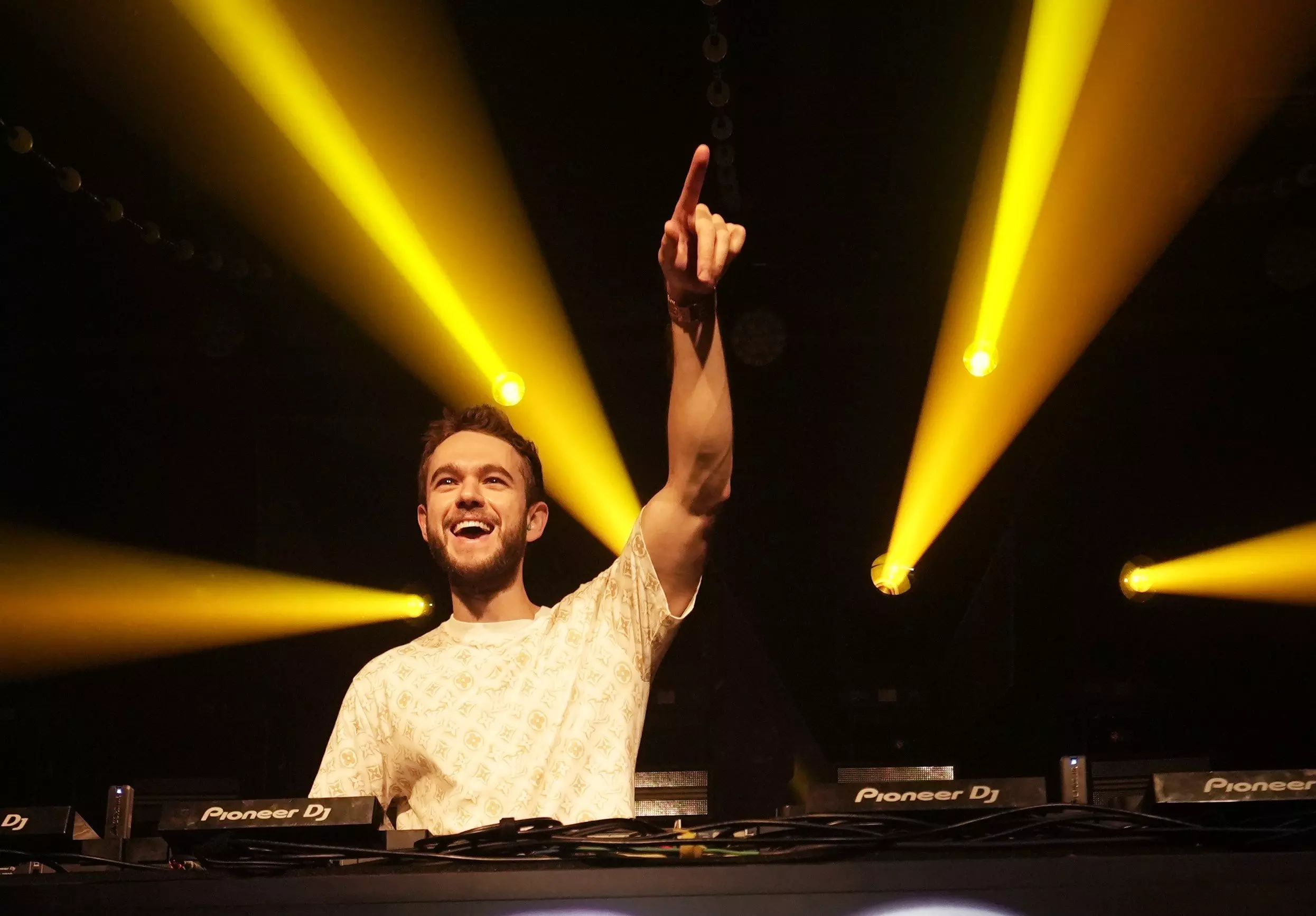
Zedd's Road To 'Telos': How Creating For Himself & Disregarding Commercial Appeal Led To An Evolutionary New Album
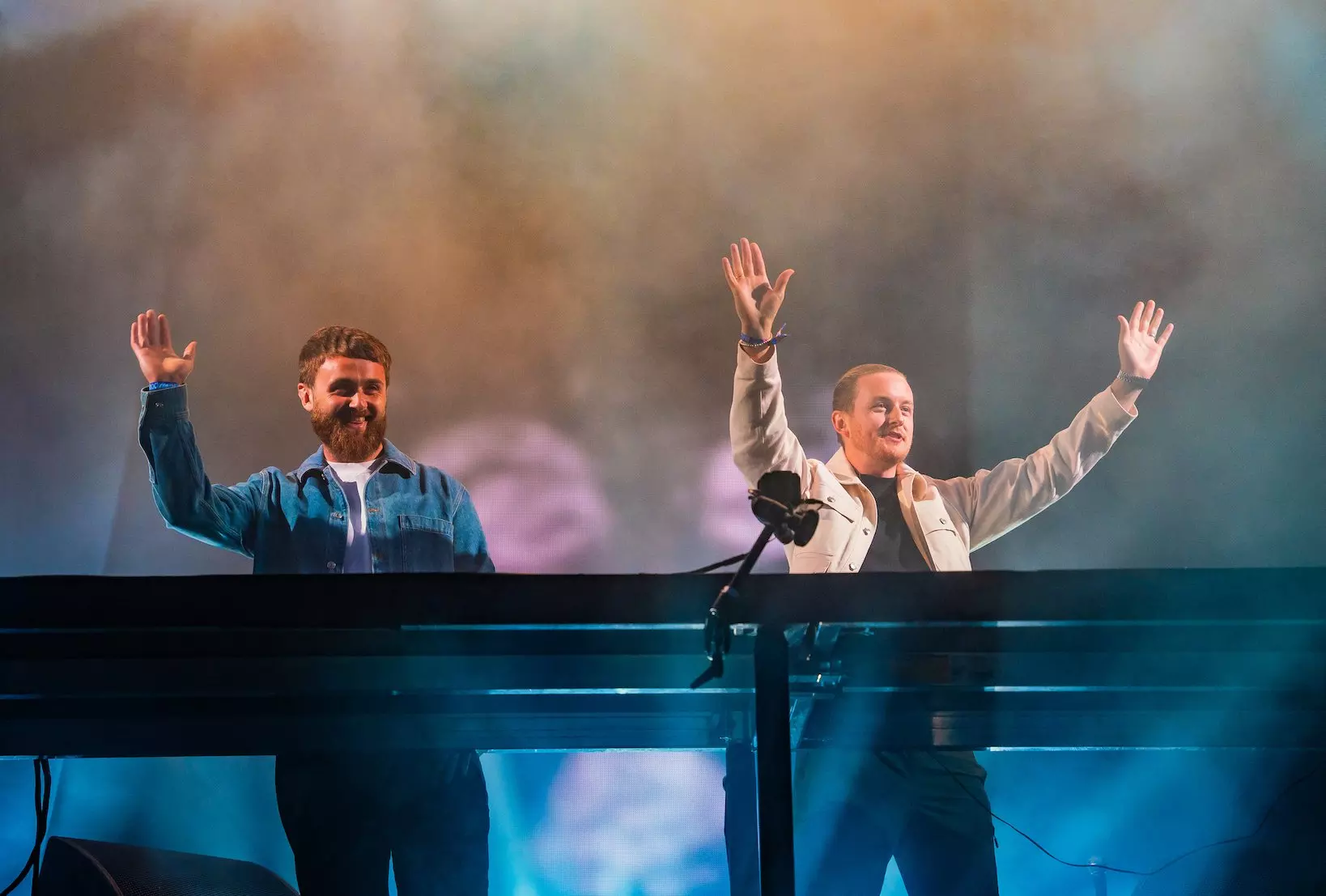
10 Cant-Miss Sets At HARD Summer 2024: Disclosure, Boys Noize, INVT & More
.webp)
Machinedrum's New Album '3FOR82' Taps Into The Spirit Of His Younger Years
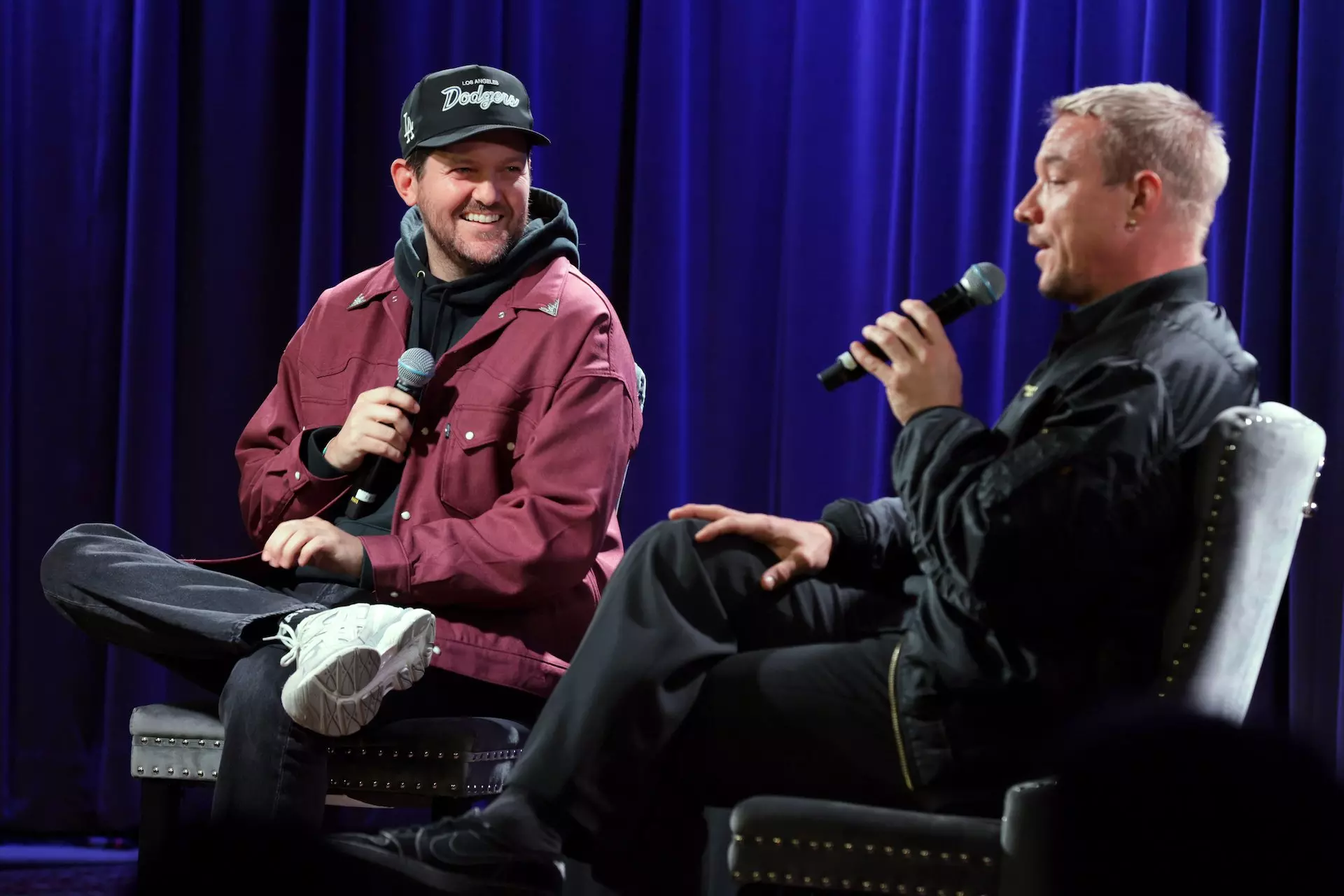
Dillon Francis & Diplo In Conversation: 5 Things We Learned From The GRAMMY Museum Event
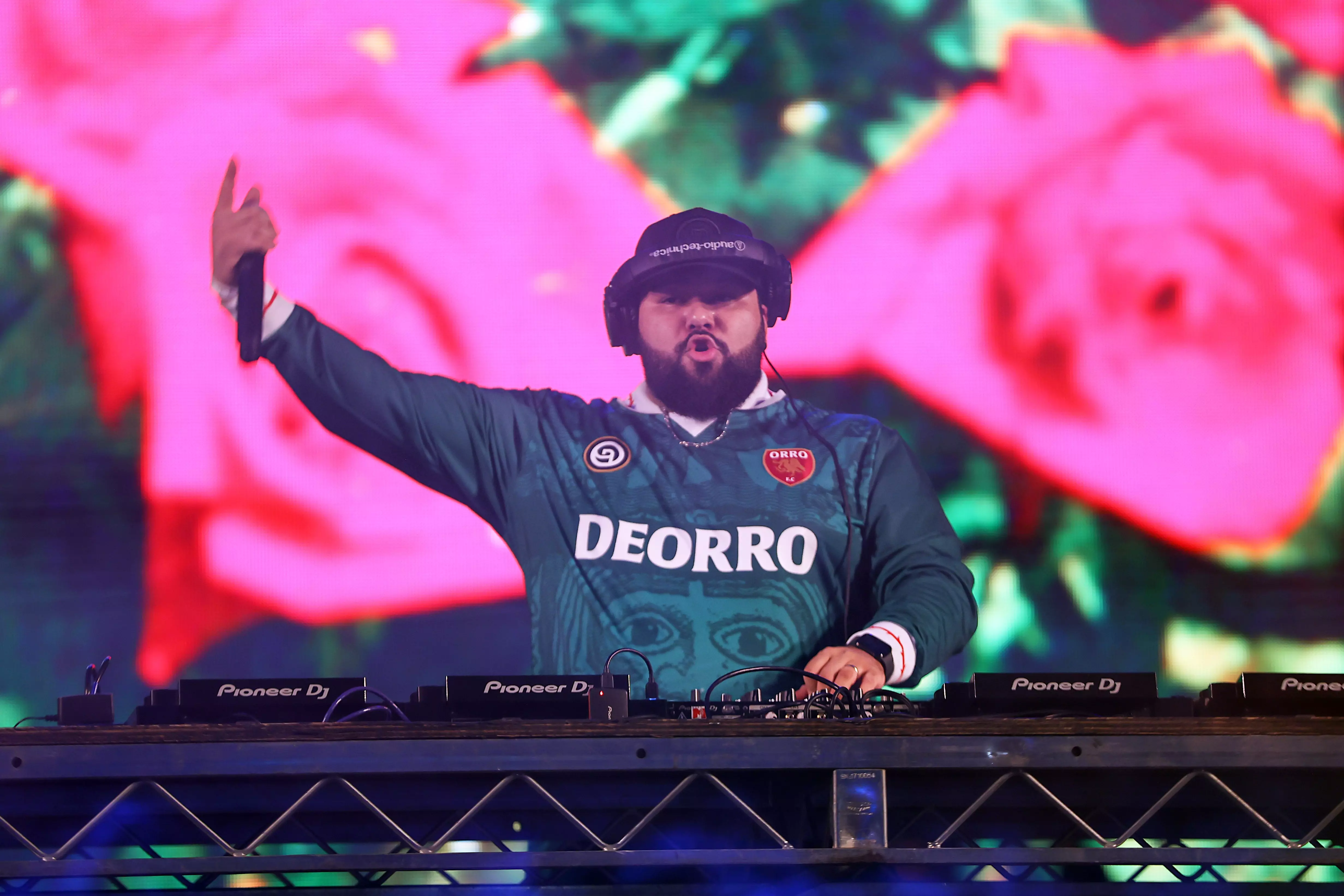
8 Essential Latin Electronic Releases: Songs And Albums From Bizarrap, Arca & More
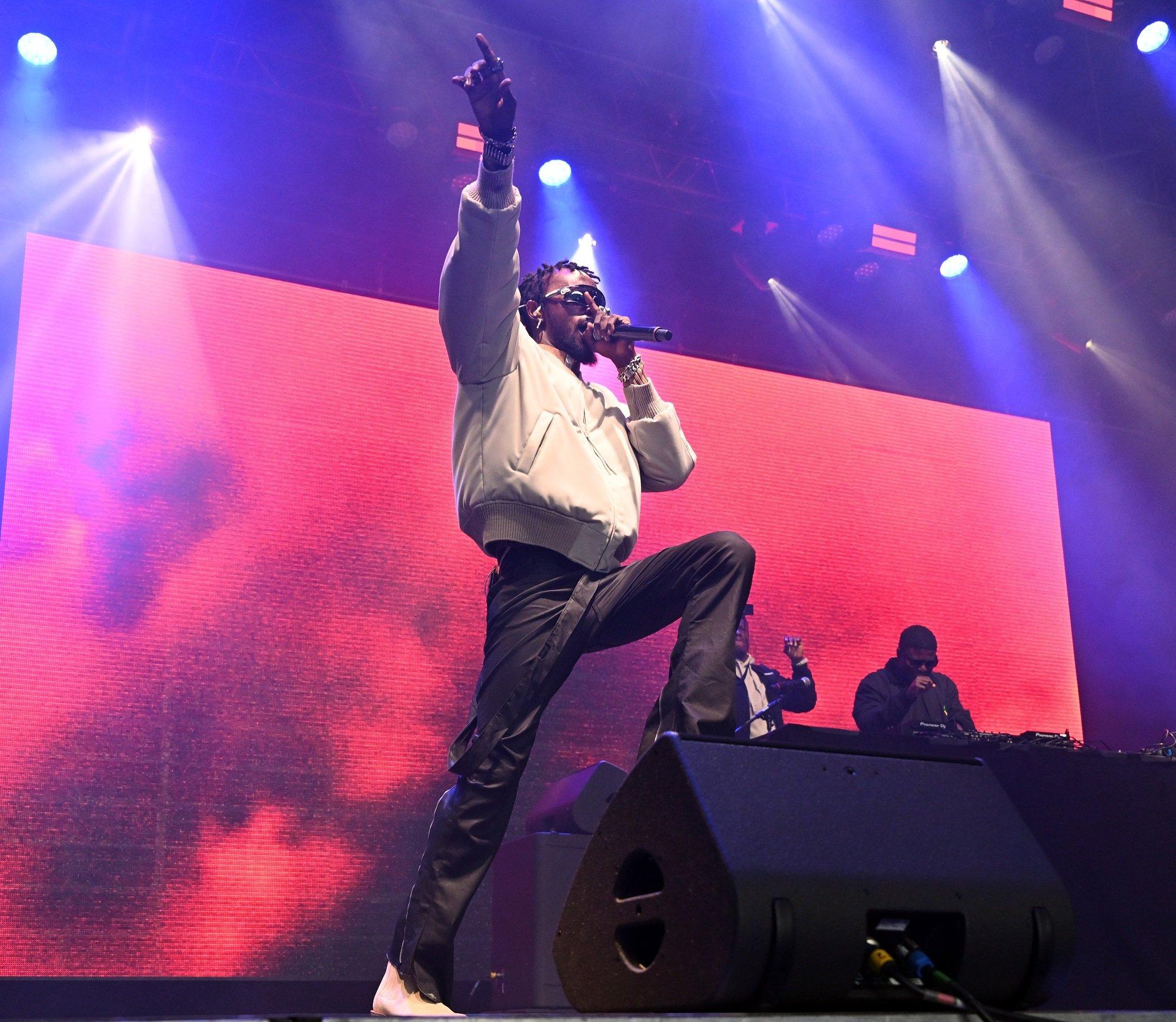
Photo: Rune Hellestad - Corbis/Corbis via Getty Images
list
10 Artists Essential To Ghanaian Hiplife: Reggie Rockstone, Sarkodie, Mzbel & More
In the 1990s, artists and producers from Accra merged the sound and aesthetic of American hip-hop with their Ghanaian sounds and culture. The resulting genre, hiplife, significantly influenced the music coming from Ghana and the African continent.
Ghana has been home to some of the most recognizable musical exports from the African continent, contributing heavily to the globalization and development of the continent's sound. While highlife is regarded as the country’s biggest sonic export, the introduction of hiplife some 30 years ago invigorated the Ghanaian music scene and birthed some of the country's most important artists.
Hiplife music blends hip-hop from the West with Ghanaian highlife sounds like Jama and Kpanlogo — a sound and dance by the Ga people, who make use of nono (metal bell), fao (gourd rattle), and local drums to play beats. These elements were fused with funk, bass, and boom-bap to create hiplife. Hiplife and hip-hop have aural similarities and both use rapping; both genres also reflect a larger culture.
While Gyedu-Blay Ambolley is considered one of the earliest rappers, as demonstrated on his 1973 song "Simigwa-Do," the term "hiplife" was only coined in the late 1990s by genre pioneer Reggie Rockstone. Still, American hip-hop had arrived in the Ghanaian capital of Accra by the early '90s and local rappers began to release their own music soon after. Duo Talking Drum were among this early cohort, and their single "Aden" was an underground hit in 1993.
As a movement and culture, hiplife is also an identity, created to encourage people to be daring in their exploration of sound. Pioneering hiplife artists like Root Eye Samini and Shatta Wale (then known as Bandana) fused dancehall and highlife in the early 2000s to make music which could connect with local audiences.
Collaborations between artists and producers have been crucial in defining the sound, evolution, and amplification of hiplife. Just as hip-hop has developed a plethora of subgenres, hiplife has birthed other sounds such as azonto and asakaa. An offshoot of asakaa, Ghanaian drill, was among the elements in the new Best African Music Performance Category at the 2024 GRAMMYs.
The story of hiplife includes many important producers, artists and labels, including Kassa Records, DJ Rab, Zapp Mallet, Akyeame, Panji Anoff, JayQ, Hammer, Ex Doe, Chicago, and Okomfour Kwadee. Going forward, the mantle will fall on artists like TicTac, Abrewa Nana, Appietus, and much later a younger generation including Asem, Richie Mensah, and Beeztrap KOTM continue to amplify hiplife. Afrobeats artists have also taken notice; Tic Tac and Tony Tetuila’s "Fefe Ne Fe" was sampled on the 2019 song "Gbese" by DJ Tunez feat. Wizkid and Blaqjerzee.
With African music continuing to gain global recognition, the rich sounds emanating from the African continent are ripe for exploration. Read on for 10 artists who have been essential to the story of hiplife music.
Reggie Rockstone
Reggie Rockstone is regarded by many Ghanaians as the godfather of hiplife, having paved the path for many to pursue rapping as a career. Working with producers like the late Rab Bakari (DJ Rab Bakari), Reggie set the ball rolling for hiplife through songs like "Tsooboi."
His 1997 album Makaa Maka offered an early template for the sound, fusing Western-influenced hip-hop with traditional Ghanaian highlife sounds. The linguistically adept Reggie Rockstone — a Ghanaian boy who was raised in the UK and New York — rapped in both English and impeccable Ghanaian Twi to the shock and admiration of many. By this singular act, he proved that it was cool to rap in your own dialect and not necessarily in English, like American rappers of the '90s.
Reggie's will to make Ghanaian rap music stand out via releases like Me Na Me Kae, and Me Ka did not go unrewarded. He also scored hits with his singles "Keep Your Eyes on the Road," "Plan Ben," and "AH." He has also collaborated withdancehall giant Beenie Man and Nigerian legend 2Face.
Lord Kenya
Lord Kenya rose to fame when he joined Slip Music, one of Ghana’s celebrated music labels of the late '90s and mid-2000s. His musicality was undeniable, and his hardcore rap style was adored by many for its energetic flow and delivery. Likened to Tupac Shakur, Kenya was very direct whenever he was on the mic. He never shied away from any lyrical battle thus earning him the title "rap heavyweight." His swagger on and off the mic made him a star, with many eager to catch him anytime he performed.
Lord Kenya's street affinity, coupled with great stage performances, left a mark on Ghanaian audiences. His albums — including 1998's Sika Card, Yesom Sika, and Sika Baa — solidified his position as one of hiplife’s most important artists. Kenya's hit singles "Enyomo," "Medo" and "Sika Mpo Mfa Neho" as well as his verse on the late Daseebre Dwamena’s song, "Kookoo" ushered in a street approach to the rap scene, as seen in the careers of rappers like Kwaw Kese and Kweku Smoke in later years.
Obrafour
Revered, celebrated, and crowned by music rap purists in Ghana as "Rap Sofo" (high priest of rap), Obrafour influenced multiple generations of rappers in Ghana. The artist first gained popularity in the late '90s with his cadence and mastery over his mother tongue, Twi, as well as his storytelling, lyricism, and wisdom.
Obrafour’s flow complemented the work of legendary producer Hammer, who brought hard-hitting drums, horns, and legendary sharp chords to Obrafour’s 1999 album Pae Mu Ka. The album is regarded as the bridge that connected older audiences who dismissed hiplife as a passing fad and the youth, who regarded hiplife as the future of Ghanaian music. Today, Pae Mu Ka is as important to hiplife as Nas’ Illmatic is to hip-hop.
Pae Mu Ka was the first of several collaborations between Obrafour and Hammer. Together, they created a sound that would influence generations of rappers. Obrafour is held in high regard by rappers such as M.anifest, Guru, Ko-Jo Cue, and Pappy Kojo.
VIP
Established in Nima, a suburb of Accra, VIP underwent significant personnel changes but never let their commitment to hiplife music falter. Original member Friction later onboarded Promzy, Prodigal, and Lazzy (who later changed his name to Zeal), and Bone championed the vision of the group for over a decade (as well as the departure of Friction, Bone and Promzy).
Backed by the group's diverse personalities, VIP quickly became one of the biggest music exports of the country, winning six awards at the Ghana Music Awards in (2004), including Song Of The Year for the 2003 hit title track "Ahomka Wo Mu." Over a two-decade period, the group released albums and scored several hits and collaborated with some of the continent's finest, including 2Face, Patoranking and a host of others. Vision in Progress (VIP) epitomized the cultural ethos of hiplife: raw energy, passion and talent.
When Reggie Rockstone, a longtime admirer of the group, arrived in 2014, the group became VVIP. The group’s success would be further cemented as they crossed over into Nigeria and other parts of the world. "Ahomka Wo Mu" has been sampled and interpolated by various musicians, including songs by MUT4Y & Wizkid and Kida Kudz.
Tinny
While Twi rapping artists dominated the hiplife music industry, very few artists were successfully making music in other local dialects. Tinny — a rapper who raps in Ga, a language spoken by the people of Accra — rose to the occasion with both rap and fashion. Another product of Hammer’s Last Two record label, Tinny had an unmatched aura that earned him the moniker "Sexy Man Tinny." Early aughts albums such as Makola Kwakwe, Aletse (Akwe Polo), and Kaa Bu Ame still echo in today’s industry. His later works with record producer Richie Mensah on singles like "Ringtone" and "Now I Know" further entrenched his name in Ghana’s hiplife history.
Tinny’s will to pursue rap music in Ga laid the foundation for artists such as Edem, who raps predominantly in Ewe and to a degree music duo Blackstone who performed in Dagbani. Tinny also featured in the BET Hiphop Awards International Cypher (Ghana) alongside Reggie Rockstone, Sarkodie, D Black, Edem, Kwaku-T and Baby G (2010).
Mzbel
In a male-dominated industry, Mzbel created change that still reverberates today through the careers of women like Amaarae, Wendy Shay, Sister Afia and Gyakie. Following in the footsteps of those before her, like Abrewa Nana (a household name in the early 2000s for her role as one of the leading female artists in hiplife), Mzbel's singing and rap skills were not just catchy, but thought-provoking with themes of love, sex, body positivity, and addressing abuse.
Mzbel's non-conformity made her a target by some aspects of the industry. The general public who felt she was a bad influence on younger girls, due to the sensuality in her lyrics and imagery. Yet she was unphased. Mzbel scored national hits with her albums Awosome, and 2005's 16 Years, and touched on issues many regarded as controversial. The rapper stood up for women’s rights and encouraged women to be vocal about things society heavily criticizes women for. She ensured that women were not bullied into silence but instead express themselves fully through art. Her hit single "16 Years" with the late Castro touched on the issue of sexual harassment and abuse young girls face at the hands of older men and, as such, became a national topic.
Sarkodie
Since bursting onto the scene in 2008, Sarkodie has churned out multiple hits year after year with a unique flow and delivery. His records touch on multiple subjects, including friendship, family, love, heartbreak, and bad governance. His hold over rap in Ghana has been extended across the continent, making him one of the most influential rappers in Africa.
In 2012, Sarkodie played a pivotal role in the amplification of azonto music (an offshoot of hiplife that melds dance music genre from the early 2010s with upbeat fast-paced sounds and witty comical lyrics) with his song "U Go Kill Me" with fellow rapper E.L. Winning "Artist Of The Decade at the" Ghana Music Awards (2019), cemented his influence and status.
Rapping predominantly in Twi, Sarkodie’s ability to find pockets on the beat has made him a frequent featured artist by the likes of Mr. Eazi, Ice Prince, Flavour, Victoria Kimani, Patoranking and a host of other important artists in Africa. Sarkodie won Best International Act: Africa (2012) and the inaugural Best International Flow at the BET Hiphop Awards in 2019.
Asakaa Boys
In a time when hiplife had taken a back seat to Afrobeats and amapiano on the Ghanaian market, a group of artists from Kumasi (Kumerica) — a slang used to describe people of Kumasi who enthusiasts of American music and culture — burst onto the scene via asakaa, or Ghanaian drill. Inspired by Pop Smoke’s drill music, the sound reflects their lifestyle on the streets of Kumasi, hiplife elements, and American hip-hop culture such as fashion.
The name asakaa originates from the word saka, a flipped slang of the Twi word kasa, which means to speak. Saka, a style of speaking where words are pronounced backwards, was heard in the songs that were released by the Asakaa Boys. The asakaa sound is credited to the Kumasi-based Life Living Records, and signees Jay Bahd, Kawabanga, O’Kenneth, City Boy, Kwaku DMC, Reggie, Sean Lifer, Braa Benk and Skyface SDW under the moniker The Asakaa Boys.
With songs like "Akatafoc", "Sore," and "Agyeiwaa," and leading the charge, Asakaa (Ghanaian Drill) has gained recognition locally and internationally in the 2020s.
Black Sherif
Black Sherif may be young, but he has already charted a path of success for himself in Ghana’s music industry which many are yet to match. Black Sherif’s sound, writing, fashion, and mannerisms have earned him admiration. He first tasted popularity when his song "Money" went viral in 2019; two years later he regained public attention in 2021 with his First and Second Sermon songs and after a Burna Boy cosign on "Second Sermon Remix," Black Sherif's popularity soared.
The artist has gone on to deliver multiple hit songs such as "Kweku The Traveller," "Soja," and a monstrous guest verse on Odumodu Blvck’s "Wotowoto Seasoning." In 2023 he won Artiste of the Year at the Ghana Music Awards and aBET Awards Best International Award. Additionally, he has performed on global stages atMOBO Awards, Wireless Festival, and 2023's AfroNation.
King Paluta
With a charisma like that of Lord Kenya, King Paluta is an energetic rapper with some "thugness" in his delivery influenced by life on the streets of Kumasi. As a young man, he often slept in the studio, where he learned how to operate the equipment in the studio and dropped his first official single in 2015.
Despite releasing music and being popular in Kumasi, he would only gain national attention in 2023 for "Yahitte," which earned him the award as the Best New Artist at The Ghana Music Awards in 2024. In the 2024 alone, he has scored two charting-topping singles, "Aseda" and "Makoma," making him arguably the hottest artist in Ghana.
As a student of hiplife, King Paluta has fully embodied the genre as evident in his music. He has positioned himself to carry on the legacy of those before him as far as hiplife is concerned, and he is on track thus far.
More News About African Music
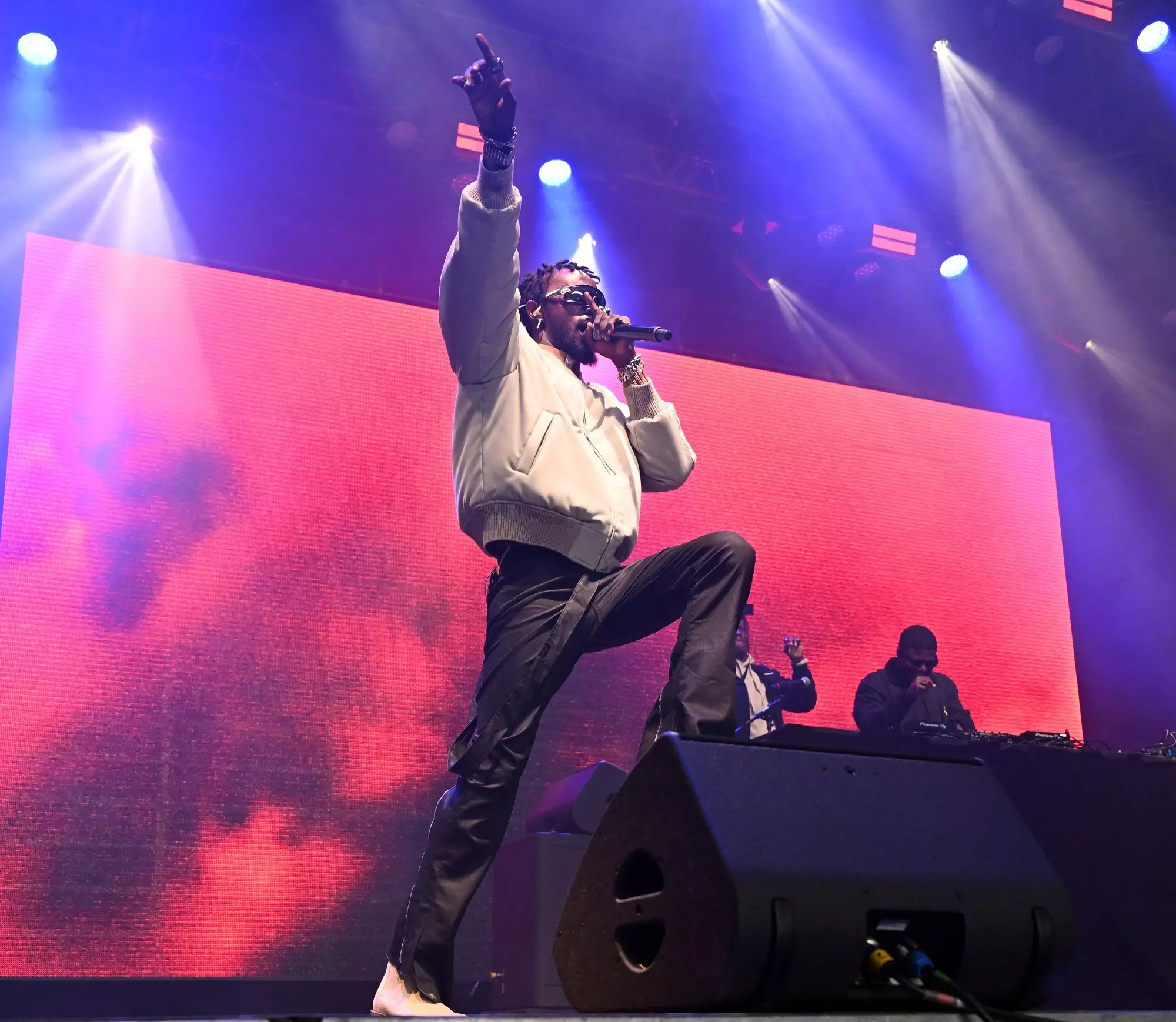
10 Artists Essential To Ghanaian Hiplife: Reggie Rockstone, Sarkodie, Mzbel & More
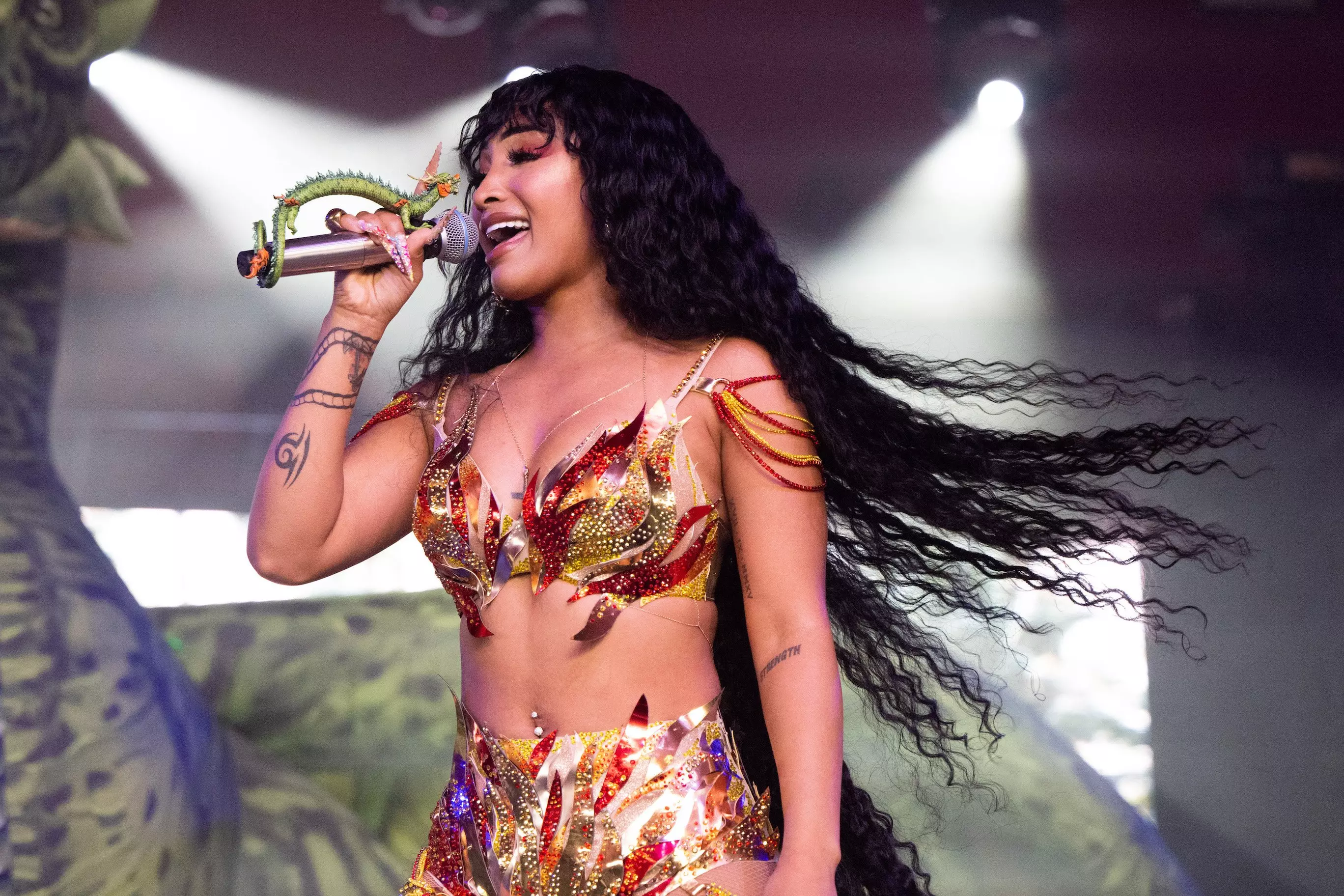
8 Can't-Miss Acts At Afro Nation Detroit 2024: Shenseea, Ayra Starr, Kizz Daniel & More
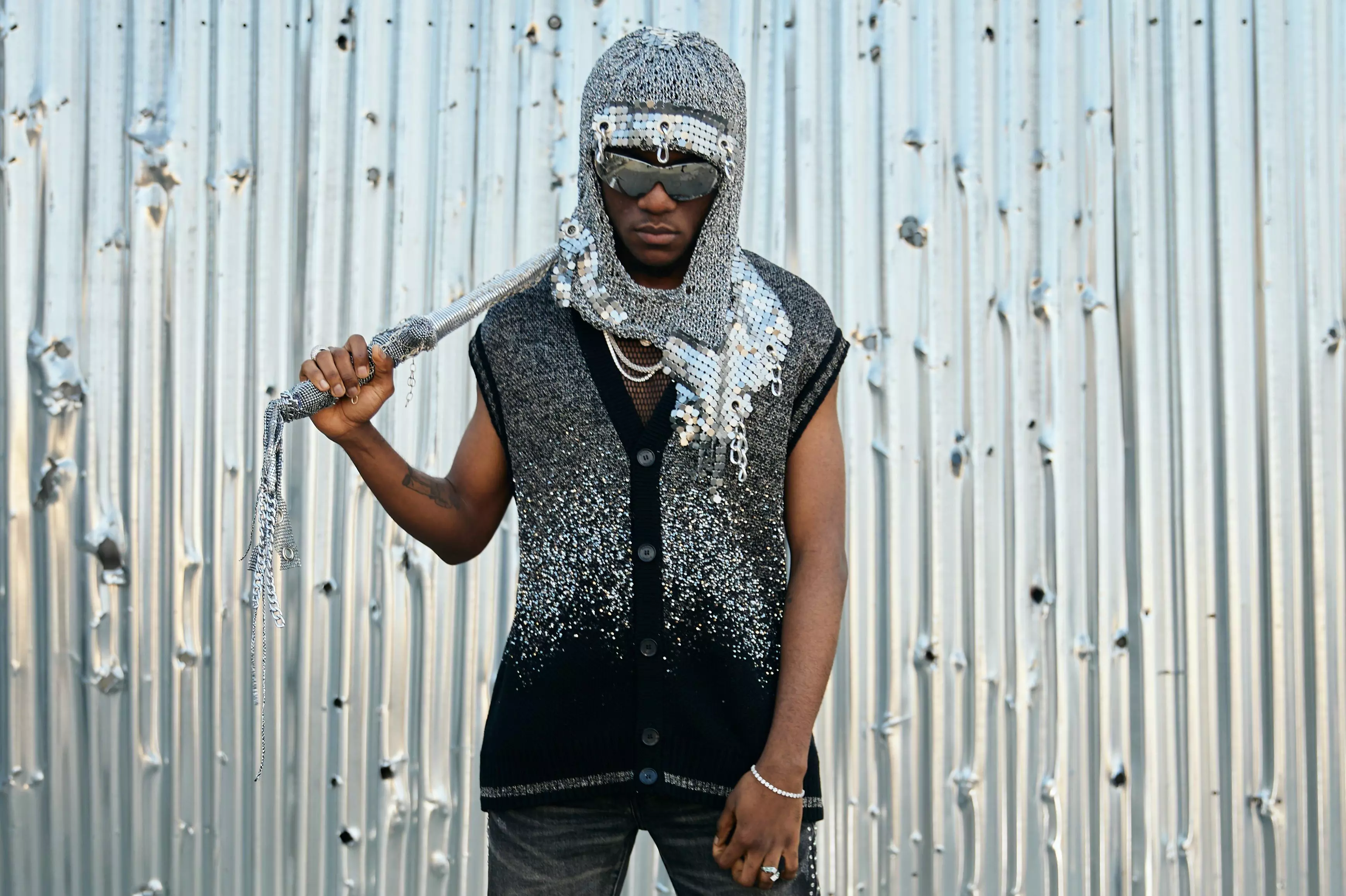
Meet Victony: The Afrobeats Sensation Sharing Importance Of Being 'Stubborn'

Watch Candy Bleakz Share Her AKG Microphone
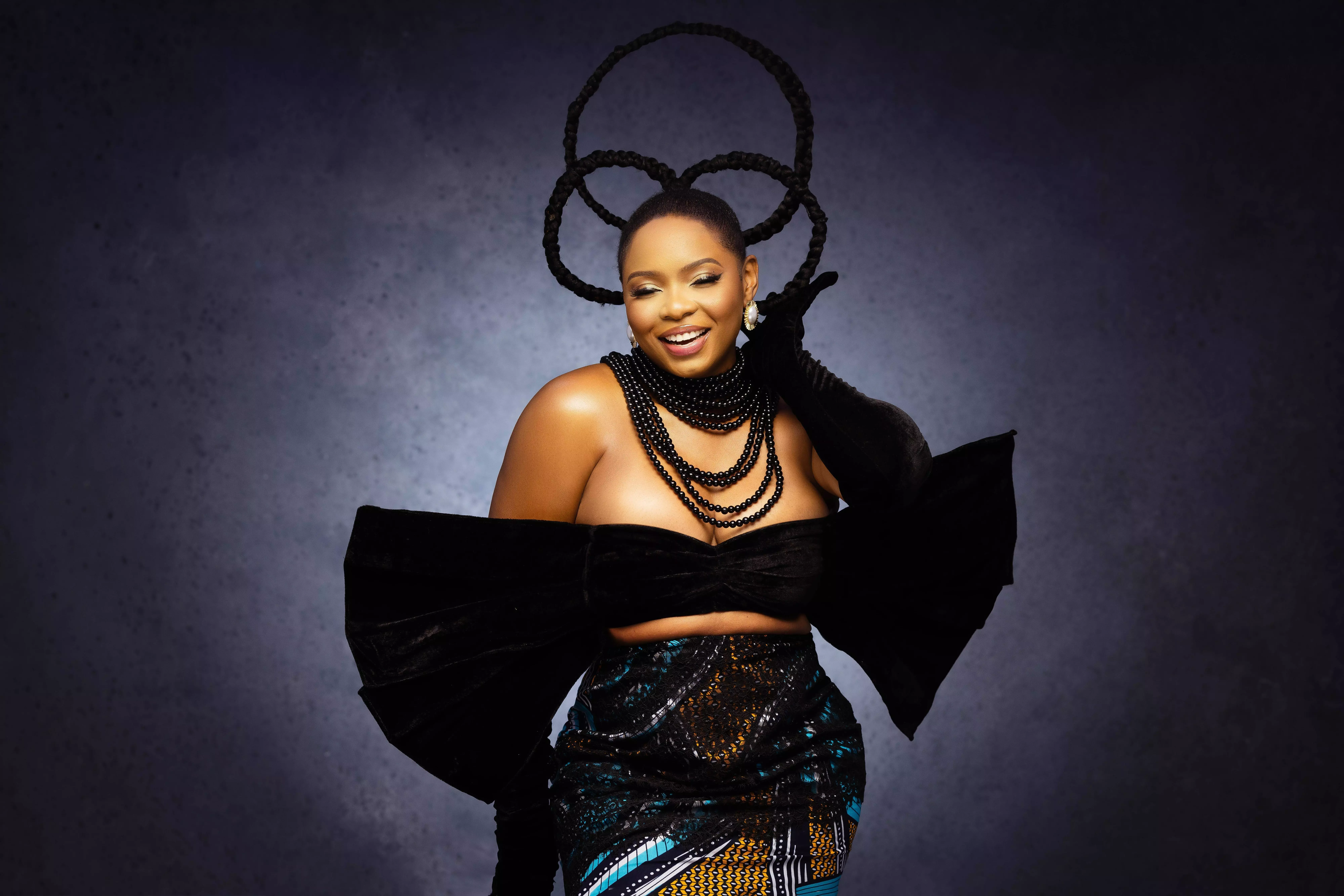
Afropop Legend Yemi Alade On New Album, 'Rebel Queen,' Historic Hits, & Working With Beyoncé
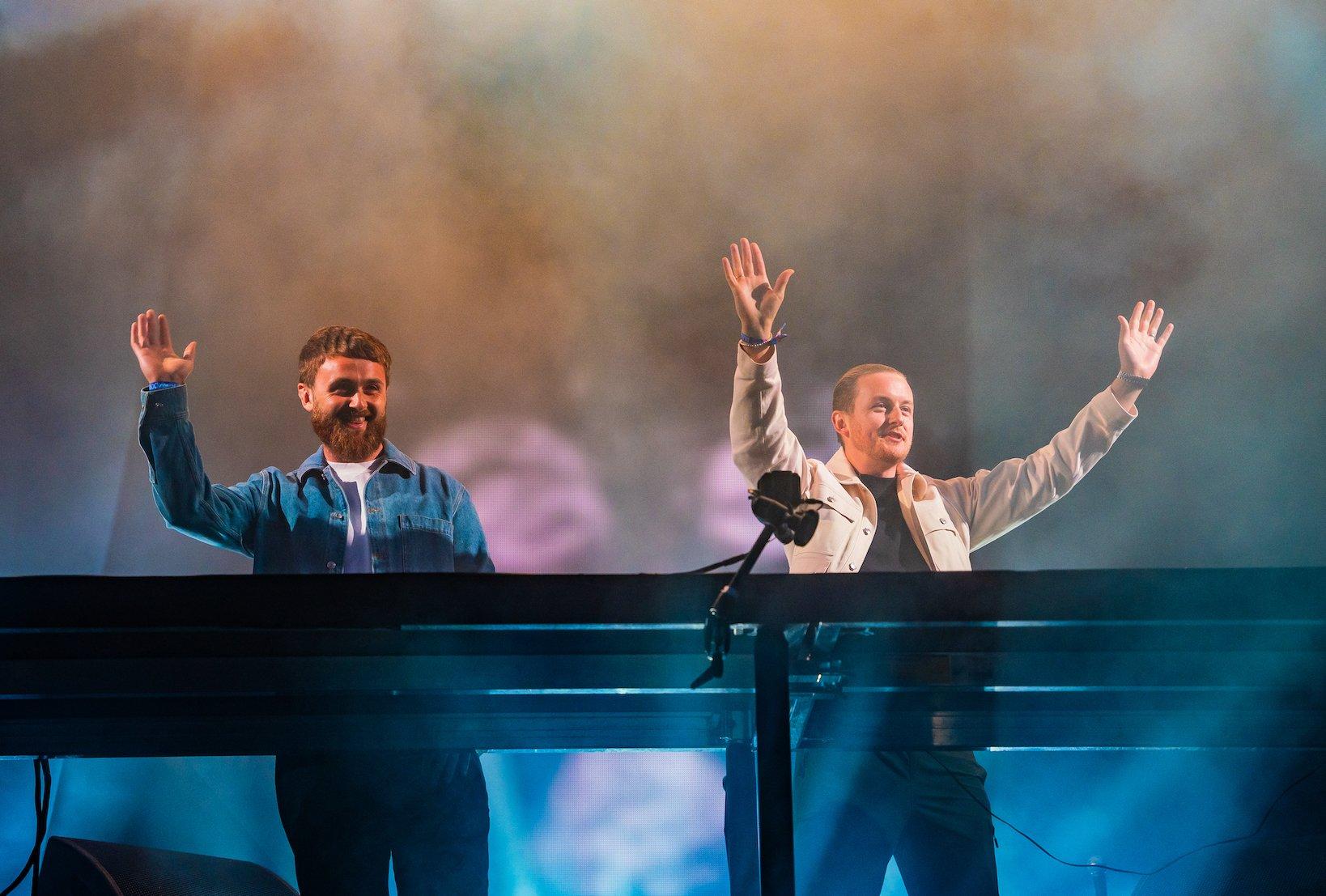
Photo: Venla Shalin/Redferns
news
10 Cant-Miss Sets At HARD Summer 2024: Disclosure, Boys Noize, INVT & More
The L.A. festival is famous for bringing an array of electronic sounds, from dance-pop and experimental techno, to classic house and rare back-to-backs — and this year's lineup features some of the biggest and buzziest acts in dance music.
When it comes to American dance music culture, few events carry the cool cache of a HARD party. Founded on New Year's Eve of 2008 by DJ and former label A&R Gary Richards, the name HARD has become synonymous with taste-making, offering fans an enviable mix of influential headliners and cutting-edge up-and-comers.
HARD parties have been a breakout platform for luminaries like Justice, Skrillex, deadmau5, and more, and the HARD Summer festival is one of the brand's most celebrated flagship events. In 2017, HARD was absorbed into the Insomniac festival family — the same company that brings fan-favorites EDC Las Vegas and Electric Forest to life — which ensures the stage production, on-site activities and other ancillary fun are sure to be supersized. How many festivals do you know that offer a Ferris wheel and a swimming pool?
Coming to Los Angeles' Hollywood Park near SoFi Stadium on Aug. 3 and 4, this year's lineup continues the tradition of blending authoritative artists, legacy DJs and unique back-to-back headliners with buzzy newcomers in a variety of genres and styles.
Whether you wanna rave out with club king Jamie xx, bang your head to bass with Zeds Dead, get tropical with Major Lazer, see what it sounds like for UK grime star Skepta to DJ, or just sing along to mid-2000s belters courtesy of dance-pop crossover queen Nelly Furtado, there's something to please every palette. Of course, in true HARD tradition, we seriously recommend exploring the undercard, because the biggest name in electronic music tomorrow is probably playing one of the HARD side stages today.
While you wrap your head around the stacked lineup, check out a quick guide to 10 must-see acts below.
Boys Noize
A legend on the decks who can play blissful disco or teeth-shattering techno with a smile, Boys Noize is a must-see on any lineup simply because he loves doing the job. He recently teamed with Skrillex on the anthem "Fine Day," and released an entire EP with alt-rap icon Rico Nasty. He's also the producer behind Lady Gaga's beloved Ariana Grande collab, "Rain On Me," and Playboi Carti's "Unlock It," but he's likely to unleash a massive set of hard techno bangers for the L.A. crowd — though you never can tell which direction he'll take you in next, so come with an open mind.
Disclosure
As the top-billed headliner for Saturday night, Disclosure should need little to no introduction to any modern dance music fan — but that doesn't mean you should sleep on their set.
Howard and Guy Lawrence emerged on the scene as seemingly an instant success. The brothers' debut album, Settle, almost single-handedly changed the landscape of popular dance in 2012, moving the taste du jour away from the big-room EDM and bass-heavy trap sound toward a UK garage revival that still carries, and helped launch Sam Smith's career in the process.
In the 12 years that followed, Disclosure has continued to push the envelope — and themselves — working with cross-genre heavyweights including Lorde, Khalid, Miguel, Kelis, Slowthai, and The Weeknd, as well as incorporating international sounds and styles into their club-driven house grooves. Earlier this year, Disclosure returned with the dance floor-ready single "She's Gone, Dance On," announcing themselves as arbiters of disco-laced funk and good-time DJs for 2024 crowds. Surely they'll be in top form come HARD Summer.
INVT
If you like your dark techno to come with a side of hip-shaking Latin rhythms, Miami-bred duo INVT is the experimental sound machine you can't possibly pass up. Luca Medici and Delbert Perez have been best friends since they were kids, and that closeness comes through in their tight experimental sets, blending booming bass with glitched-out techno synths, cumbia rhythms, dembow beats, and acidic edge.
INVT are — as the name may imply — extremely innovative, leaning into their own productions and edits to curate an approach that feels hypnotic, exciting and unique. If you're not afraid of beats that go really hard and get a little weird, this is a set that can set your wild mind ablaze.
Rezzmau5
What happens when you put two of the most unique and hard-hitting producers in electronic music together on one stage? Deadmau5 is one of the scene's leading icons, and Rezz (who released her debut album of deadmau5's Mau5trap label in 2017) shifted bass music culture with her gritty, techno-fueled, half-time sound. The two share a love of dark, stomping, left-field noise, and after years of teasing possible collaborations, those shared interests merged on the 2021 collaboration "Hypnocurrency." Two years later, they released the booming, dystopian 2023 single "Infraliminal" — not just a brilliant rework of deadmau5's 2012 track "Superliminal," but the official introduction to Rezzmau5.
Rezzmau5 haven't released anything since, and live performances from the duo have remained few and far between. But the monolithic duo just warmed up their trippy joint live show at Tomorrowland 2024, which was set in "the mythical realm of Silvyra," a world "filled with creatures, plant life, and people living in harmony." Whether or not their HARD set follows the same storyline, it's certain to shake the skulls of every dancer at Hollywood Park. Prepare your body for something deep, dark and maniacal.
Elderbrook
There aren't many electronic acts that bring the same level of frontman energy that Elderbrook boasts on stage. A multi-talented performer, the UK artist sings and plays instruments, creating a rock-show experience unlike most sets at heavily electronic festivals like HARD. He leads the crowd in heartfelt sing-alongs to hits including "Numb," "Something About You," "Inner Light" and, of course, his megahit CamelPhat collab "Cola."
Bouncing between his microphone, synthesizers and keyboards, samplers and drum pads, his one-man band performance is sure to draw a serious crowd. If you're ready for a break from the hard-edged rave noise and want to ascend to heavenly heights, Elderbrook is the man for the job.
Fisher + Chris Lake (Under Construction)
Nothing is more fun than watching two best mates go absolutely nuts on the decks. And when two stellar DJs go back-to-back, everyone wins, because they spend the whole set trying to impress each other.
Chris Lake is one of the most influential producers in tech house. Fisher is one of the most unhinged and energizing DJs one can ever witness. Together, the besties deliver an over-the-top party with an arsenal of mind-numbing drops, weirdo grooves and just-plain fun vibes that make you wanna hug your friends and dance 'til you sweat. The set is called Under Construction, but make no mistake: these two have completely mastered the blueprint.
JYOTY
If you like your sets to be playful cross-genre explorations of sounds from around the world — tied together by booty-shaking beats and booming bass lines — JYOTY is sure to check all your boxes. She knows how to lead a great party because she spent her childhood frequenting the unmatched clubs of Amsterdam. And with an ethos built around playing whatever the heck she wants, she's comfortable dropping a bit of hip-hop into some Brazilian bops, mixing it up with hard breakbeats, blistering rave synths and more.
Kerri Chandler
If you don't know your history, you're doomed to repeat it, but no one brings the house down quite like Kerri Chandler. A pioneer of the original deep and garage house movements, Chandler was a foundational DJ of the '80s scene, holding down a residency at the legendary Club Zanzibar in New Jersey and founding the MadHouse Records label. If you want to feel the soulful spirit that made electronic music what it is, Chandler's dreamy mix of feel-good melodies served over kickin' club beats are a direct line to house music's roots.
Mary Droppinz
You know how Mary Poppins had a magical bag that held everything from a hat rack to an ornate mirror, a house plant and a Tiffany lamp? Well, California DJ Mary Droppinz comes equipped with a magical USB that's positively bursting with mean beats and original edts.
This woman can blend everything from grimy bouncing bass to ethereal orchestral house, Spice Girls reworks, drum'n'bass bangers, reggae upbeats, '90s R&B remixes and chart-topping hits of the moment twisted into face-melting heaters. You can try to guess where she'll go next, but it's better to just let her take control and follow the vibe through all the devious twists and turns. The one thing you can count on? You'll leave her set dripping with sweat.
Overmono
Disclosure aren't the only brilliant UK brothers on the HARD Summer lineup. Overmono's Tom and Ed Russell hail from Wales and make some of the most inspired club records of our time.
With backgrounds exploring hard techno, drum'n'bass and rave, the brothers combined their talents in 2015 and have since created an enviable blend of soulful atmospheres and frenetic breakbeats that feels nostalgic and sentimental, but still very heavy. Overmono's 2023 album Good Lies is a great play from start to finish, and a good way to get prepped for their critically acclaimed live set. If you need a big-name co-sign, Overmono was recently featured on Fred again..'s "Stayinit" with Lil Yachty on the vocal. That's the caliber they're rockin' with — and the prestige they'll bring to HARD Summer.
Latest Music Festival News
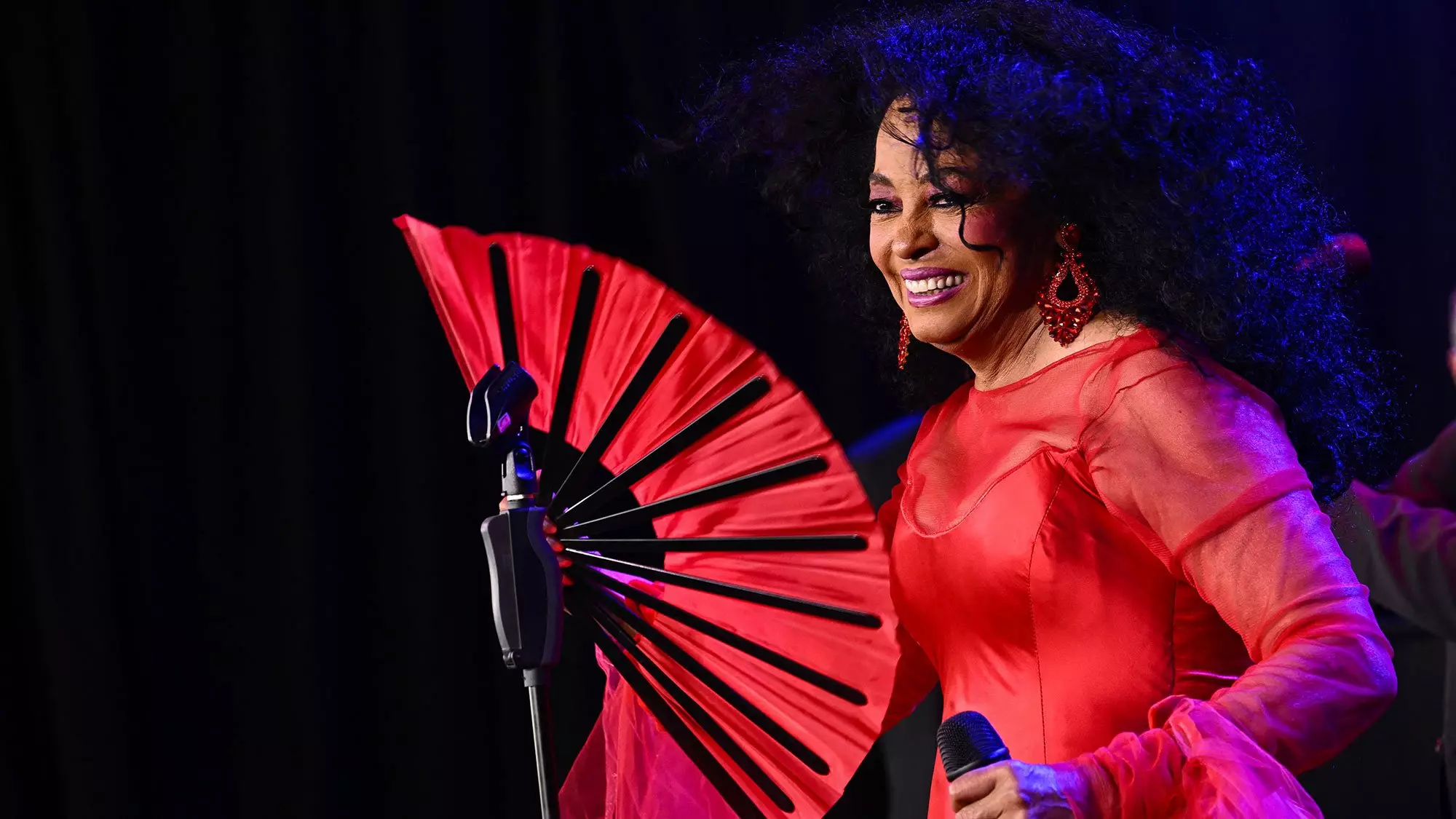
Get Ready For Fool In Love Fest With This Soulful Playlist: Hits & B-Sides From Chaka Khan, Thee Sacred Souls, Smokey Robinson & More

8 Can't-Miss Acts At Afro Nation Detroit 2024: Shenseea, Ayra Starr, Kizz Daniel & More
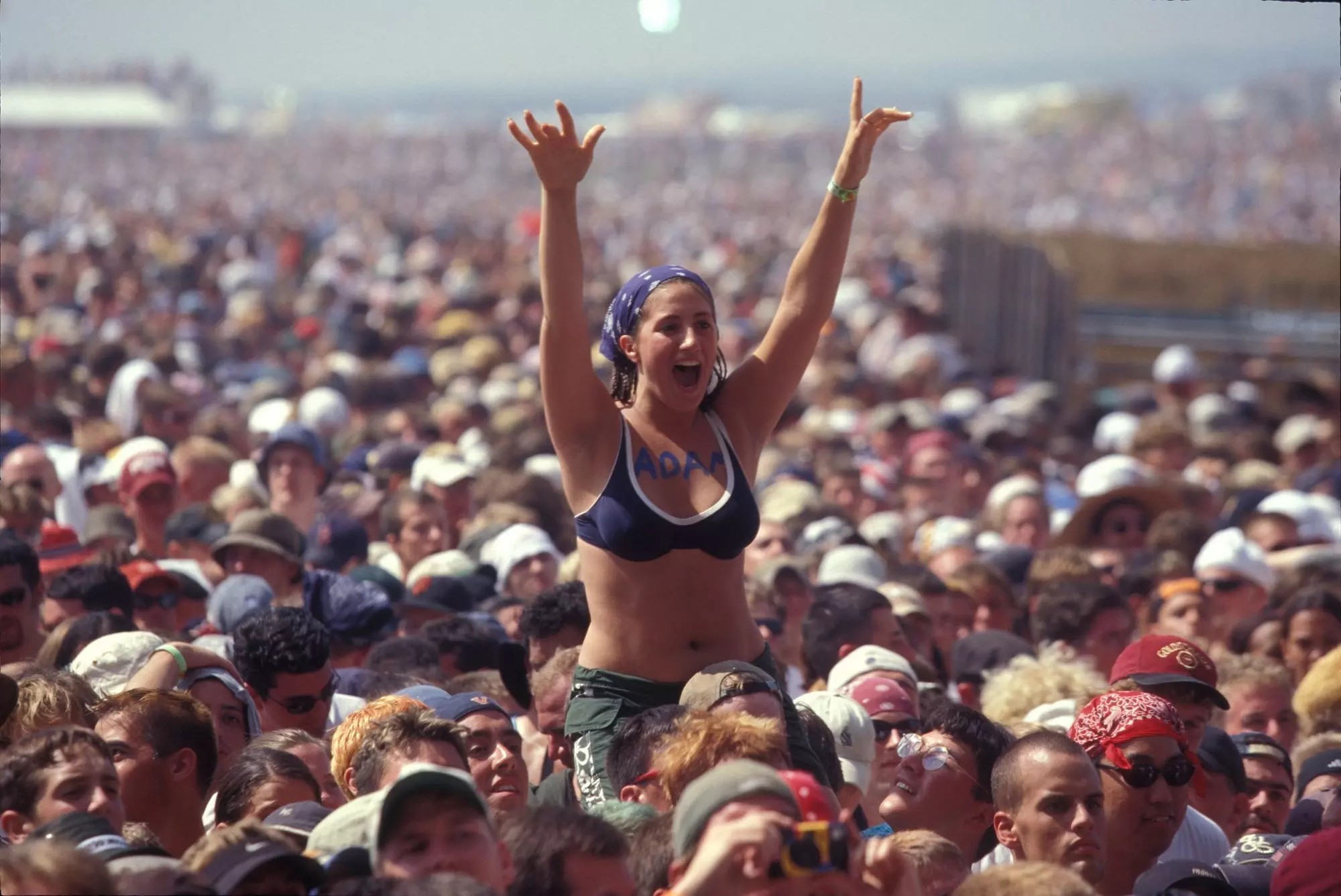
On This Day In Music: Woodstock '94 Begins In Upstate New York
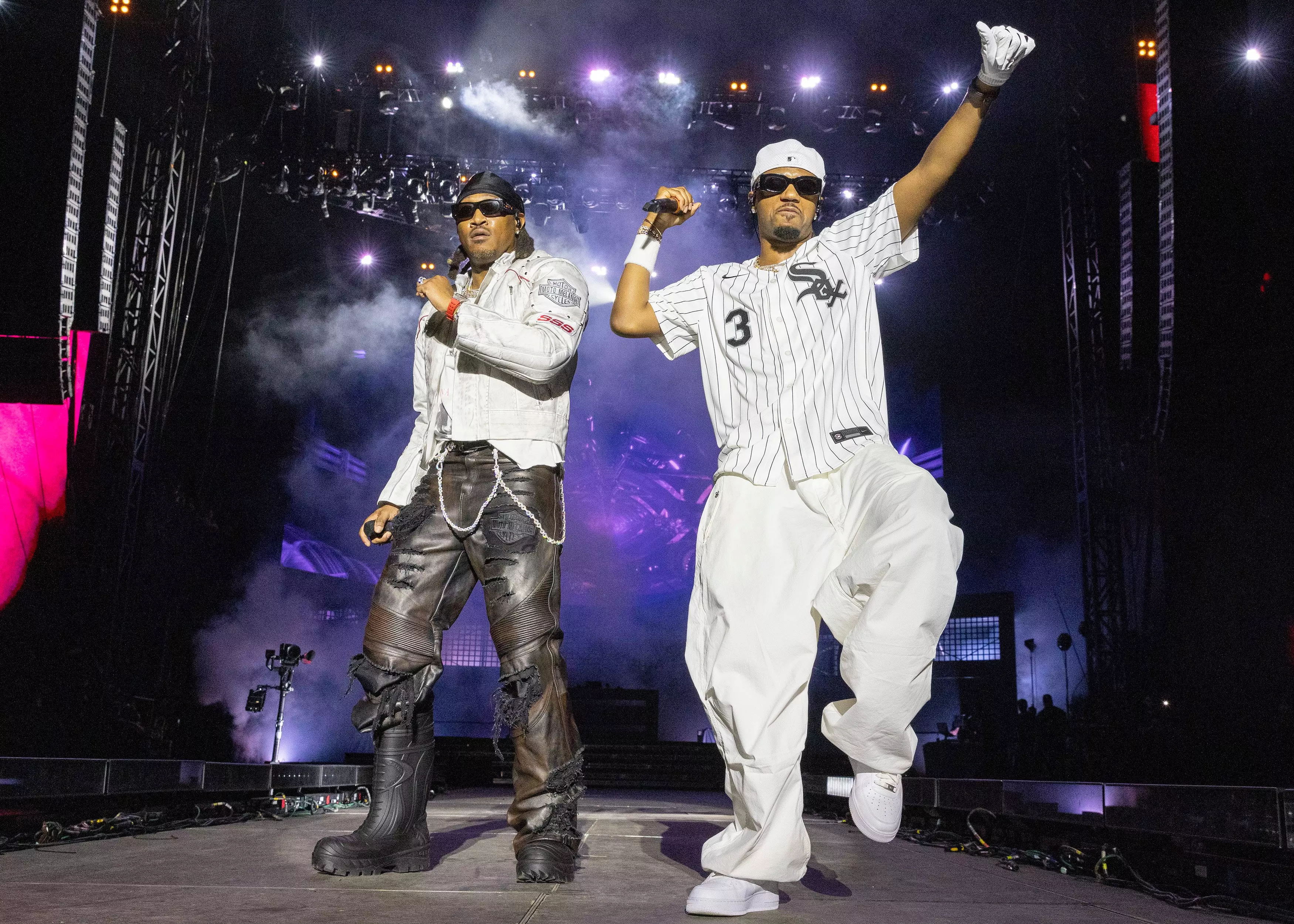
7 Stellar Sets From Lollapalooza 2024: Megan Thee Stallion, Future x Metro Boomin & More

10 Cant-Miss Sets At HARD Summer 2024: Disclosure, Boys Noize, INVT & More
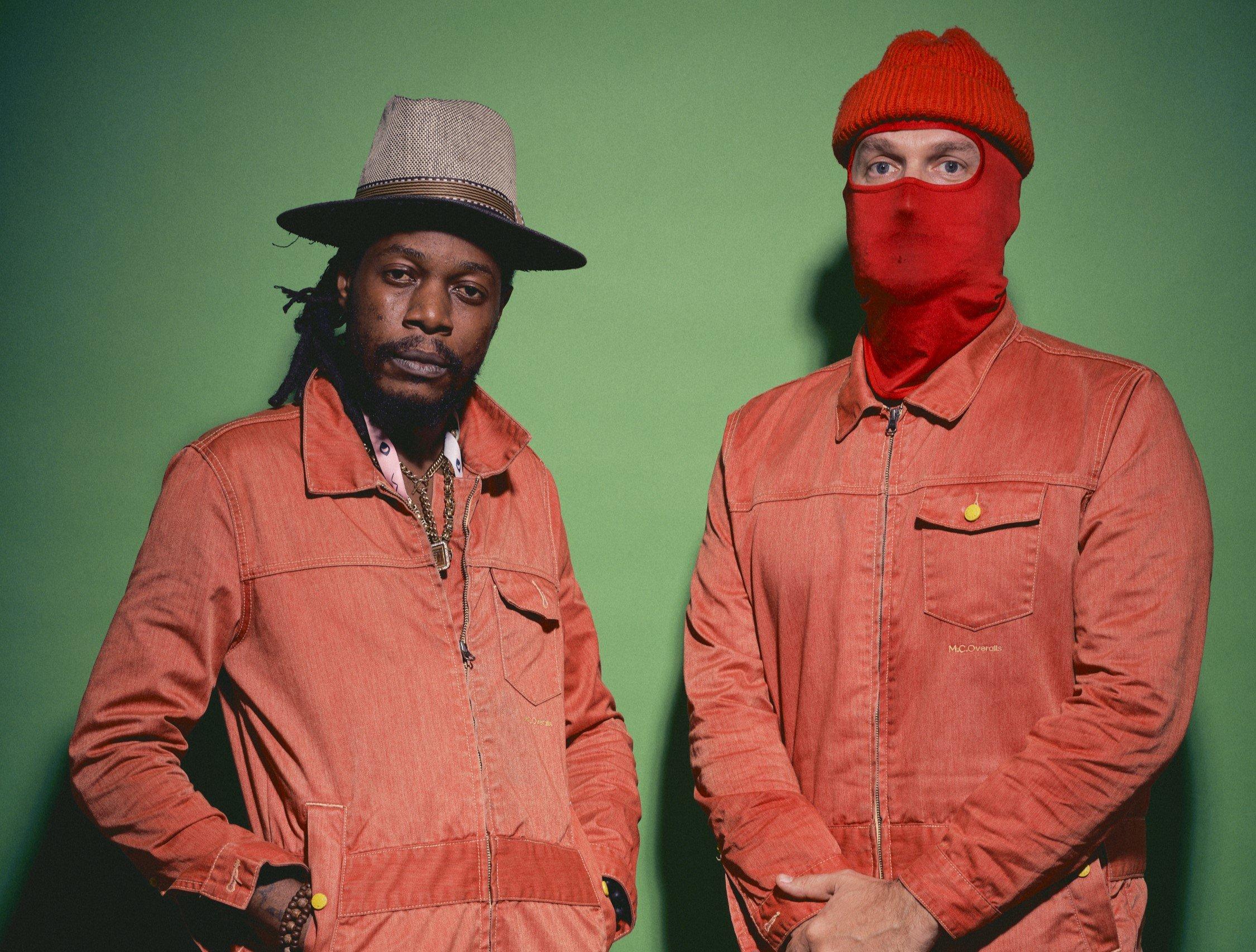
Photo: Sven de Almeida
interview
Meet KOKOKO! The DIY Electronic Group Channeling The Chaos & Resilience Of Kinshasa
The exciting live electronic act out of the Congo discusses their fiery, pulsing, sophomore album, 'BUTU,' the manic sound of Kinshasa, and using improvisation to keep their performances energized.
No one else sounds like KOKOKO! — they are a truly unique aural experience, an emphatic statement that does justice to the exclamation point in their name.
The experimental live electronic group out of Kinshasa — the active, populous capital of the Democratic Republic of Congo — is a reflection of their city. Their shouted and chanted lyrics reflect people's frustration with their government, as well as the sonic signals of industrious local vendors. Even their DIY instruments are an example of their resourcefulness: Although DRC is a resource-rich country, that wealth has been extracted by and for Western powers for centuries. Locals are left with limited resources and experience regular power outages and intense, ongoing conflict.
KOKOKO! was born after French electronic producer Xavier Thomas — who makes left-field, globally-influenced electronic music as Débruit — met talented local singer and musician Makara Bianko on a visit to Kinshasa. He was captivated by Bianko's large, nearly daily outdoor performances with his massive dance crew. The group, which also consists of locals Boms and Dido who fashion DIY instruments, incorporate much of Makara's improvisational and interdisciplinary energy into their music and energetic live show, while Thomas brings in synths, drum machines and other electronic elements.
After releasing their powerful debut album Fongola in 2019 on indie label Transgressive Records, KOKOKO! started getting booked at music festivals around the globe, as well as on NPR's Tiny Desk series and Boiler Room. Now, the cutting-edge group is pumping up the BPM and bringing the lively Kinshasa nighttime to the rest of the world via their urgent, high-energy sophomore album, BUTU, on July 5 on Transgressive.
Read on for a chat with Thomas and Bianko about their captivating new album, the music scene in the Congo, how their music reflects Kinshasa, and much more. (Editor's note: Bianko's answers are translated and paraphrased from French by Thomas.)
What energies, sounds and themes are you harnessing on 'BUTU?'
Xavier Thomas: "Butu" means night in Lingala [one of the national languages of the DRC]. The album is all about that high energy, specific atmosphere that happens when the night falls in Kinshasa.
It's a very loud and crowded city. It gets pitch-black quite quickly because it's on the Equator. The sun sets really fast all year long. The sounds of the city kind of wake up [at night]; the generators are plugged in and the club music and evangelical church music [start] competing. All the inspirations are from all these sounds and everything that happens in the night in Kinshasa.
The band plays a lot of DIY instruments; what instruments are on this album and can you point to their specific sounds?
Xavier Thomas: There're the go-to things and then there's the found objects or the ones you can build. Simple things that are kind of ready-made, like detergent bottles — you can play it with a stick with a little bit of rubber, and it kind of makes bongo sounds with a slight natural overdrive.
And you can also build your own string instruments with what you found on the street. For example, there's plastic chairs that have metal feet, and you can do a kind of metallophone with; if you chop the tubes, you will get different pitches, etcetera. You can find something in a mechanic shop that sounds really good straight away when you hit it; metallic percussion. So that's all the different DIY instruments or found percussion that you can make or work with.
Was it mostly the same instruments as the first album, or were there some different things you were incorporating as well?
Xavier Thomas: There are different things. Also, on this one, we use a little bit more of electronics, as it's a bit more upbeat and influenced by the club and the small music production studios of Kinshasa.
There are also some field recordings. For example, on some tracks, there's horns from moto taxis that we pitched and made melodies with. But yeah, it's roughly the same instruments.
The term DIY is often attached to the band. Of course, you just talked about the instruments, but I was also curious what DIY and improvisation looks like in your music-making process and performances.
Xavier Thomas: It was an all-over DIY thing when we started. I used to make a lot of the videos. We [still] work with a small team, so we always have problems getting visas. We're doing a bit of everything just to keep going forward and traveling and to get our music everywhere. So, the DIY is not just the music, it's [all very] hands-on. Even on stage, we don't turn up with a big team, it's pretty much us at the moment.
The DIY aspect came out of necessity for the music and instrument creators, of not being able to afford to buy or rent an instrument. So it started like that, trying to make a one- or two-string guitar, a two-string bass, and a drum set. And then it went beyond that, realizing we can find original and new sounds if we're not copying existing instruments.
When I met Makara, he was doing five-hour public rehearsals six times a week on his own with 40 or 50 dancers. He had to work out all the technical problems with power cuts and amplifiers exploding. Makara still has that energy, even when we're sound checking. A lot of that DIY intuition is still coming in.
The recording process has to be DIY because you're recording in outside music studios in little compounds or in difficult neighborhoods of Kinshasa, so there's a lot of sounds in the background. You just grab the moment where the energy, the music, the inspiration feels right. That's another DIY part of the project, it's pretty much recorded outside of recording studios for the most part.
How does that also speak to access to instruments, internet and music studios for music-making in the DRC more broadly?
Xavier Thomas: Well, there's some big artists in the Congo that have a lot of money and travel to play even in the U.S. and France. A few artists have everything they want and they're very famous and wealthy. But most of the studios I've seen are a tiny room in the corner of a compound, yet people are doing the most impressive productions and recordings with very little, whether it's electronic or live music. It's very resourceful and sometimes you don't hear it, you could not imagine it would be coming from such a small studio.
I wish I could ask about every song on the album, because it feels like there's so much energy and context in each one. Can you tell me about the opening track, "Butu Ezo Ya" — the energy starts out so strong. Is there a message behind that song?
Xavier Thomas: The first track is kind of an invitation. It's saying the night's coming, be ready. We have all the sounds that we grabbed in the streets. That's the track where the horns of the motorbikes are pitched and turned into melodies. It's an invocation, an invitation, to the listener to step in the Kinshasa night because it's really something.
We wanted the opening track to be a little bit overstimulating, which is the impression you have the first time you step into the night in Kinshasa. So that's the idea, to [channel the] overwhelming street sounds that suddenly from chaos become organized and become the opener of the album to invite you to the more organized music after. [Chuckles.]
Makara Bianko: I'm inviting people to step into the night, step into the album.
The album's next track, "Bazo Banga," is really captivating as well.
Xavier Thomas: "Bazo Banga" means they are scared. Sometimes people chant it when they're protesting. It can also be used in sport events about the other teams. There's a lot of frustrations in Congo; the population is a bit abandoned by the government. Sometimes there are political things that can't be said or expressed because it's a bit dangerous. So, in this track — Makara has explained the lyrics to me before — it's a way to regain a bit of control by trying to impress the other side.
Makara Bianko: There's another angle mentioned at the end of the track: We're bringing so many new sounds that their hips are not going to hold. They are scared they are out of date, that they will not be matching our energy or be able to move because we're going too fast. During the track, I'm quoting a lot of images of why they could be scared.
Xavier Thomas: In Kinshasa, our sound is still very different. At the beginning, with all the music, art performers, people who do body performance as well, who gravitate around our music and are sometimes part of the videos; [other] people thought we were all so crazy. The music didn't fit any standards there, even though Makara has a lot of influences, more when he was younger, in more standard music like Congolese rumba or ndombolo. I think people can still be a bit scared of our style and our energy, the people we work with, it's a bit different.
In what ways is your music incorporating — as well as radically shifting — traditional and popular Congolese music?
Makara Bianko: Growing up in Kinshasa, there's a lot of Congolese rumba and nbombolo. I'm also influenced by [Congolese] folk music, really old rhythms and chants. Congo is so big that this has just been mixed in our music, but we are presenting it like it's a new recipe. It doesn't taste like what you're used to even though the ingredients are there. There's also influences [in our music] from outside countries like Angola or South Africa.
Xavier Thomas: What struck me the most when I first met Makara at this concert — from my Occidental angle — he has a very punk energy. Even though people aren't listening to punk music in Kinshasa, Makara would stick his mic in the speakers and play with feedback, and he has a very powerful voice and sometimes a very threatening singing tone. It was not influenced from punk; it was his own energy, his own frustration.
I think music helps express the frustration a lot of people have in Congo, and people see that in him, through his anger and when he talks about things people encounter on the street that they can relate to. So yeah, some of the old folk music is there as influences, but it's very important to him to not do the same thing that a lot of artists have done for the last 40 years and to bring something new.
What's going on in Kinshasa and the DRC in terms of electronic music? Are there other DIY electronic acts coming up?
Xavier Thomas: There's a lot of electronic music now, I think the big scenes are in South Africa or Nigeria for big pop electronic music. Congo used to influence a lot of West Africa and Central Africa and now Nigeria and South Africa have quite strong industries, so sometimes there's a bit of that influence.
With more Congolese rhythms for electronic music, you can have the whole range from very pop to very alternative. In the neighborhood where we started, there's a few more bands coming up now with DIY instruments who play a bit more like folk music from the Equator region in the north of the country. In Europe, I've noticed three bands since we started that now work with more DIY instruments. There's a music producer, P2N, from the southeast of Congo who makes repetitive electronic music in a kind of hypnotic, dance way.
The band has been touring quite a bit since the first album. Locally, are you an active part of a scene, or is it more like you're doing something different there and bringing that around the world?
Xavier Thomas: We're still quite unique in Kinshasa, and if we play there it would be more of a block party. Makara has a lot of dancers in his crew, and dancers would join from the youngest at the beginning [of the show] to the more experienced, bridging between classic Congolese dance and more contemporary dance. There's a lot of theater in the dance as well.
When we play there, it's still alternative. Once in a while we might play a bigger stage, but we play out [of the country] way more in front of way more people. We try not to play too often [here]. It's a huge city, so it can be tricky with the power cuts and everything. It's more of the art scene and people from the performance art school and dancers who gather if we do an event in Kinshasa, it's not huge crowds.
You've performed on some pretty big platforms, as well as at global music festivals. What goes into your energetic live performance; is there improvisation?
Xavier Thomas: It's key that we are still incredibly passionate, and we feel the music and leave a lot of space for improvisation. Then we can surprise each other, even during a gig. One track can be one length or double the next time, depending on the feeling, the crowd, the sound system and the time we play.
Usually, people end up really moving, sometimes without realizing. We don't spare any energy. You end up drenched in sweat. I think because our excitement is real, the music is not over-rehearsed. We're still always excited at every show. I think people can feel that it's not staged. There can be unexpected things happening, which keeps us energetic, motivated and surprised on stage.
How does the band usually feel after a performance? Is it a cathartic experience?
Xavier Thomas: Well, we have our kind of ceremonial thing. We usually talk together at the beginning; we gather and stick our heads together, and we say where we are and what we want to achieve. At the end of the concert, the whole hour or so feels like it's passed by really quick, and you're still left with that rhythm or energy, even though you might be super tired, sometimes traveling and playing every day. Sometimes we have more energy at the end. At the beginning, we feel tired, and then the energy really comes in, and we feel super energized and super sharp and really awake at the end. It's good for us.
What does Kinshasa sound like to you?
Xavier Thomas: For Makara and I, to explain to somebody who's never been to Kinshasa, it's a very sonic city. I've never seen [anything like it]. It's so crowded; I think it's 15 million or 18 million people now. [Editor's note: 17 million is the latest estimate.] Everybody lives on the ground floor. There aren't too many high buildings, so the density of people is very high. For this reason, it's visually a bit crowded and overwhelming with people, cars, colors and everything.
Therefore, to be noticed or stand out, everybody needs to have their own little signal or jingle. You can tell who's around you with eyes closed. A nail polish vendor would just bang two little glass polish bottles; that sound carries far away and they have their rhythm. People who sell SIM cards have a loop on their megaphone.
Sound is how to be noticed; how to sell yourself, what's your role, what's your identity. That's obviously, without talking about music and sound systems. Churches have their own huge sound systems and they can clash with the club in front. Also something very typical in Kinshasa; it goes to the fullest, to the max, everything is used at its highest potential. The sound is pushed in overdrive and distorted because you want to be louder than the next person. It's all these little sound signals that can tell exactly who's around you or sometimes where you are as well. For me, that's the sound, plus the traffic.
Wow. It must be so different going somewhere more remote, or just where it's quieter. It must feel almost like something's wrong.
Xavier Thomas: There's not many moments with silence because at night the city is still alive. People like to go out. You can have a church next to you with a full live band and a huge PA sound system at 3 a.m. Quiet moments are rare.
Makara: It's hard to deal with silence. I don't feel comfortable in silence because I've never really experienced it.
Latest News & Exclusive Videos

Watch Ray Charles Win Album Of The Year In 2005
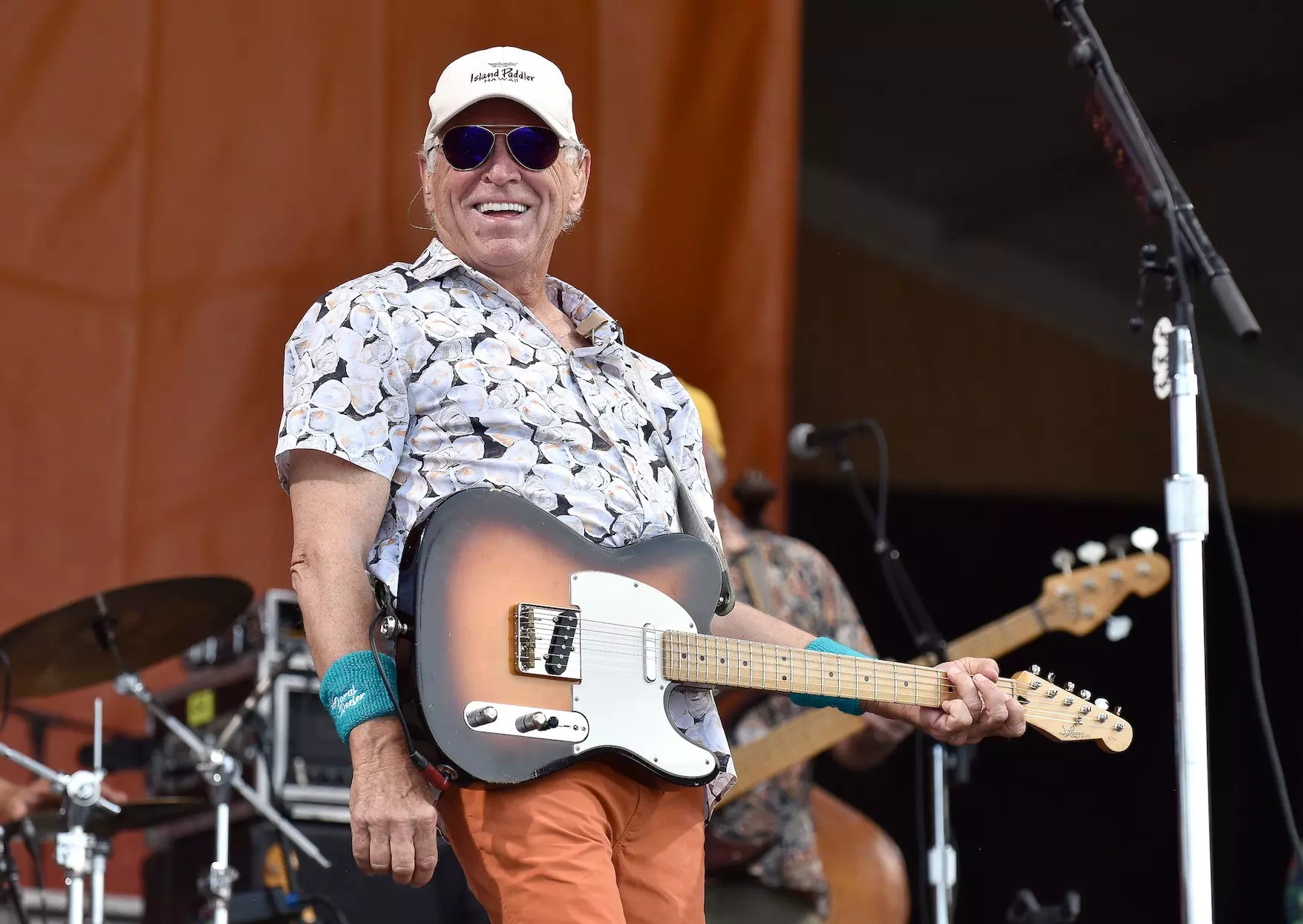
A Pirate Looks At Infinity: Jimmy Buffett's Legacy In 15 Songs
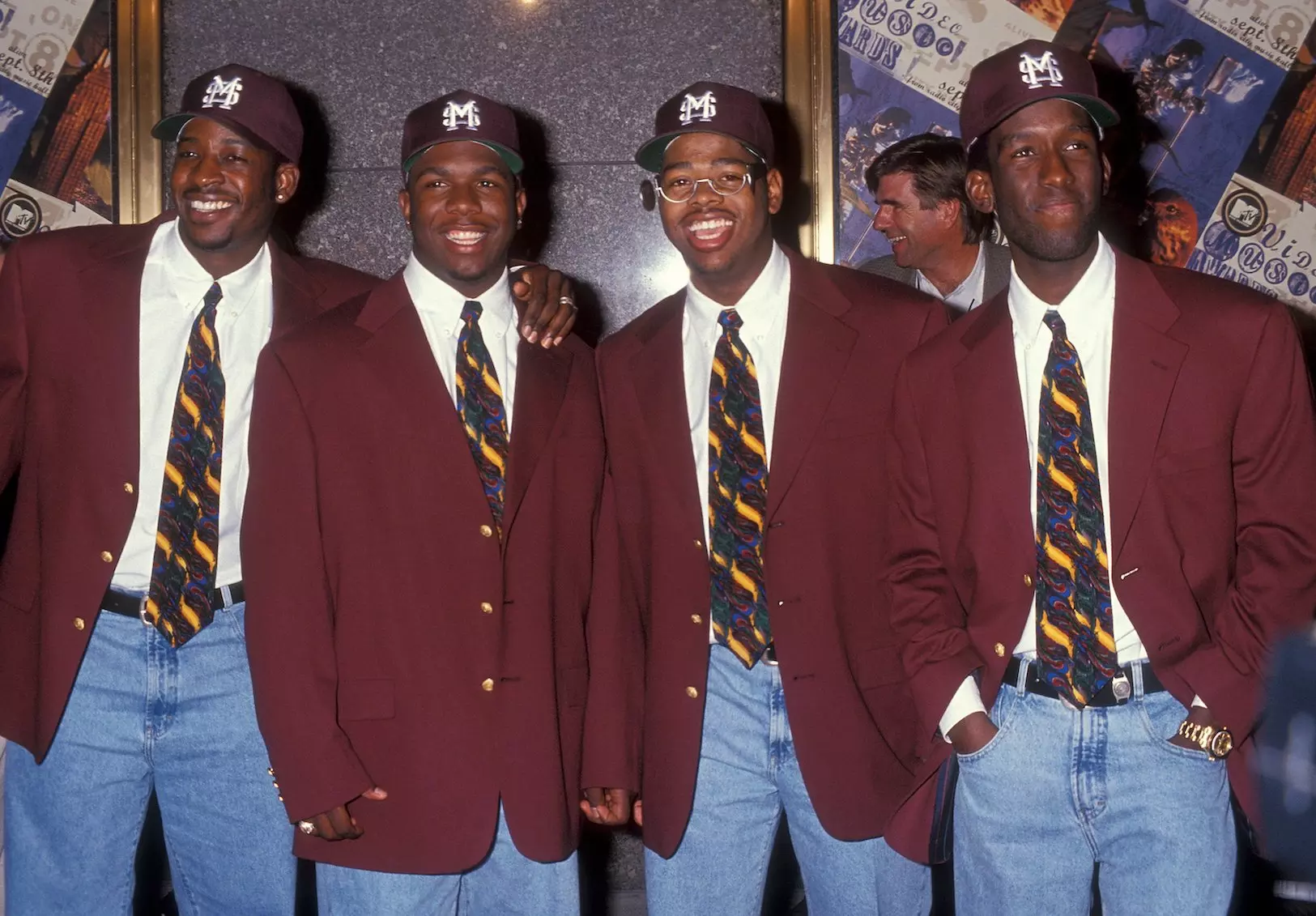
8 Reasons Why Boyz II Men's 'II' Was The '90s Ultimate R&B Blockbuster
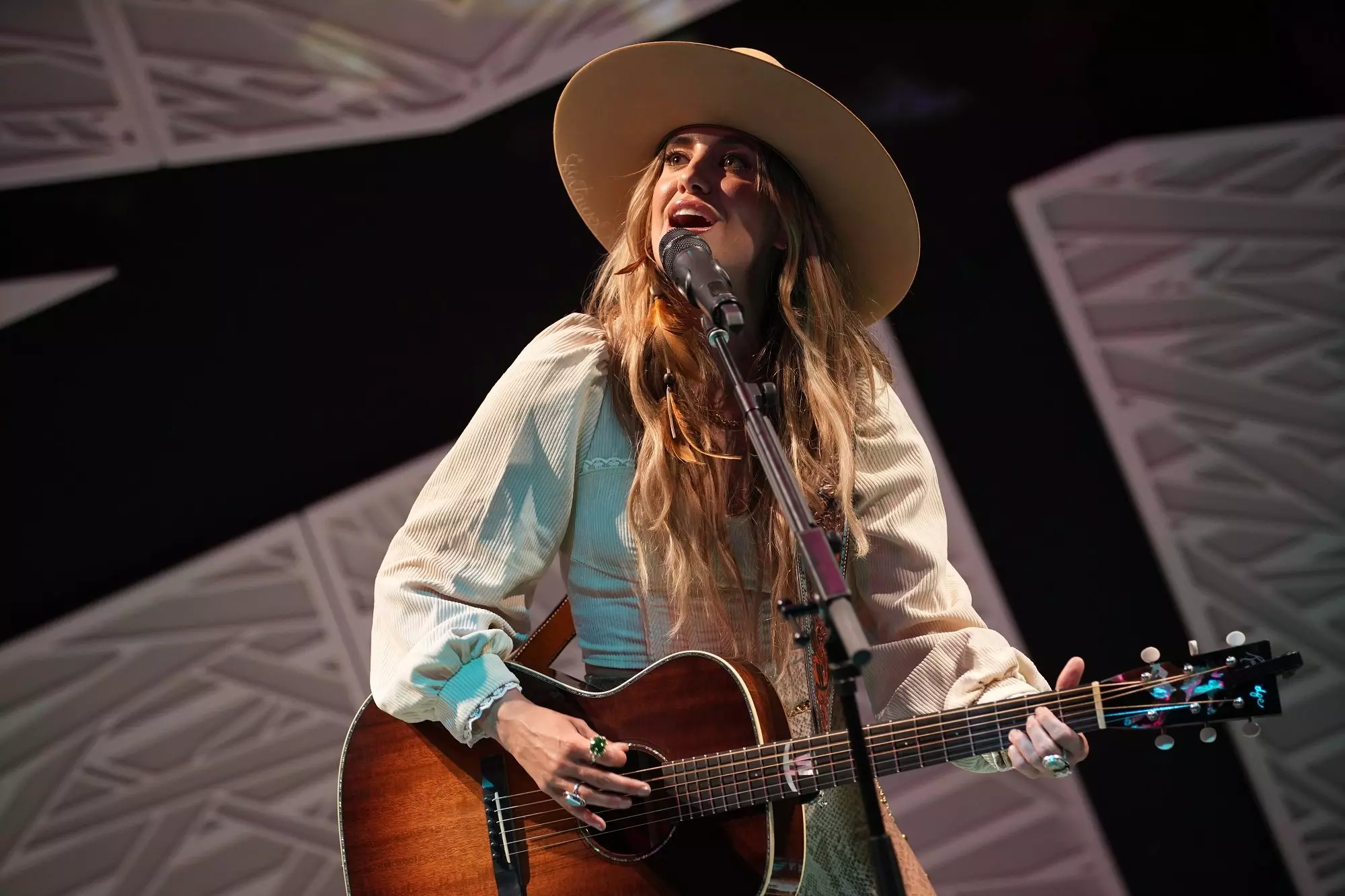
20 Live Events At The GRAMMY Museum This September: Experience Orville Peck, Kate Hudson, Tierra Whack & More

Watch Wunderhorse Perform "July"
